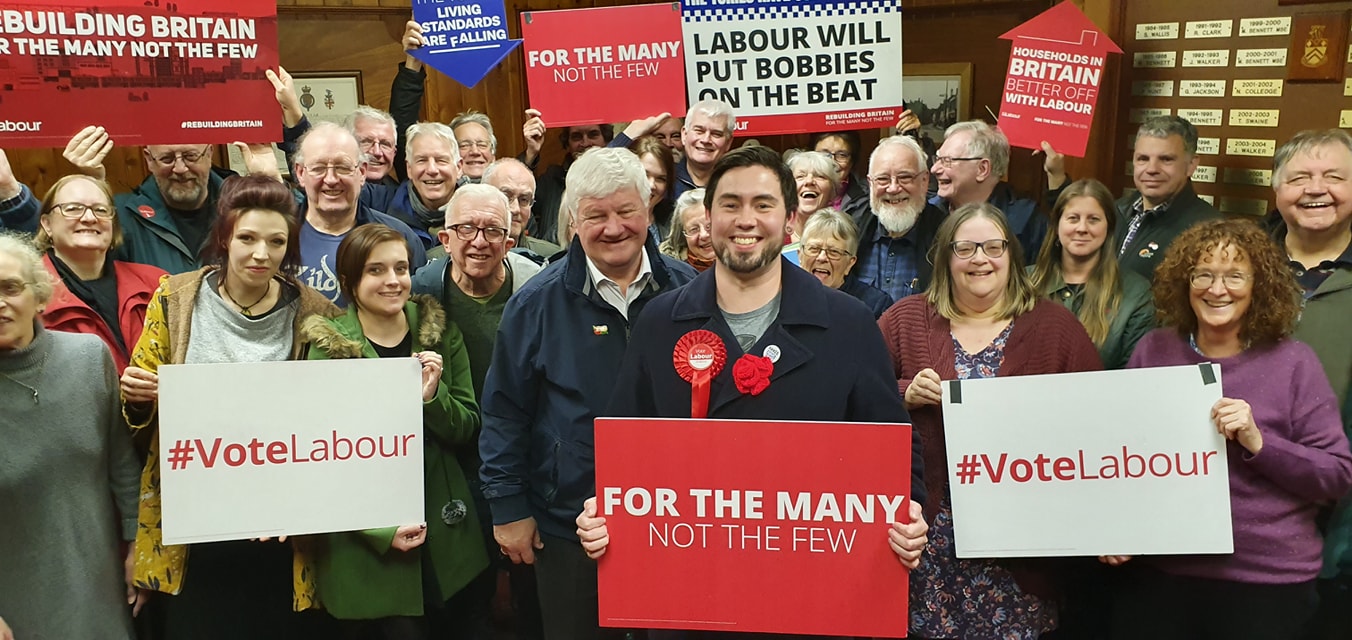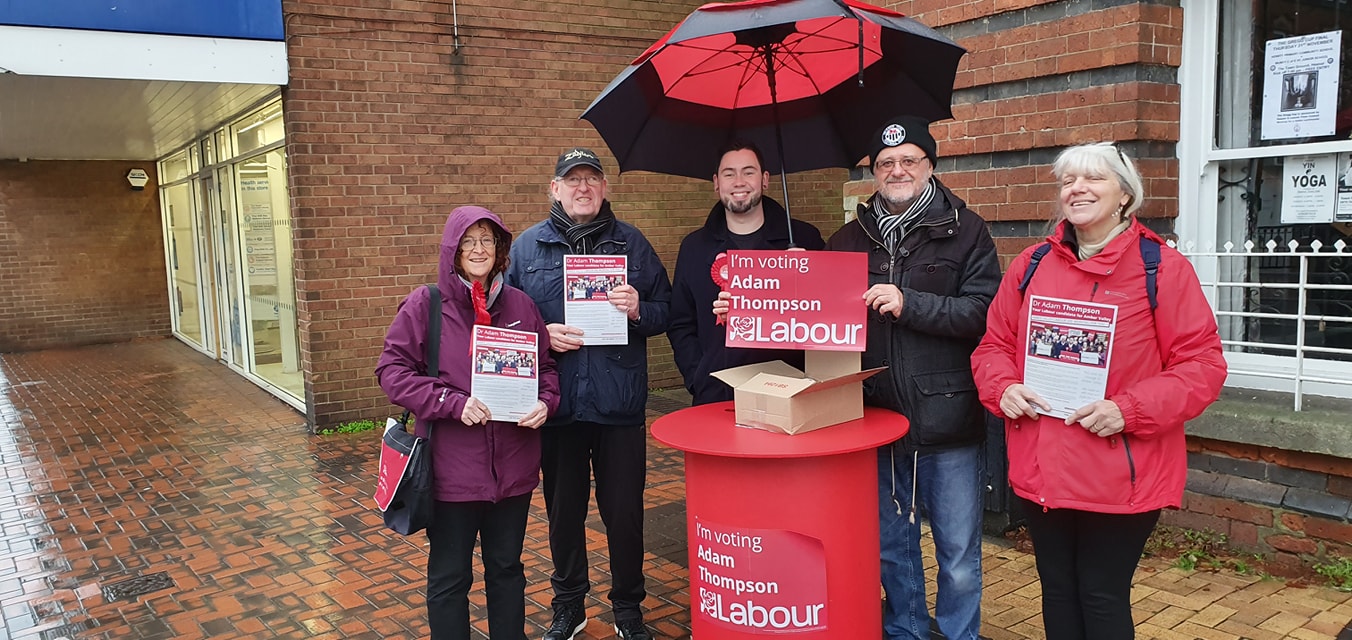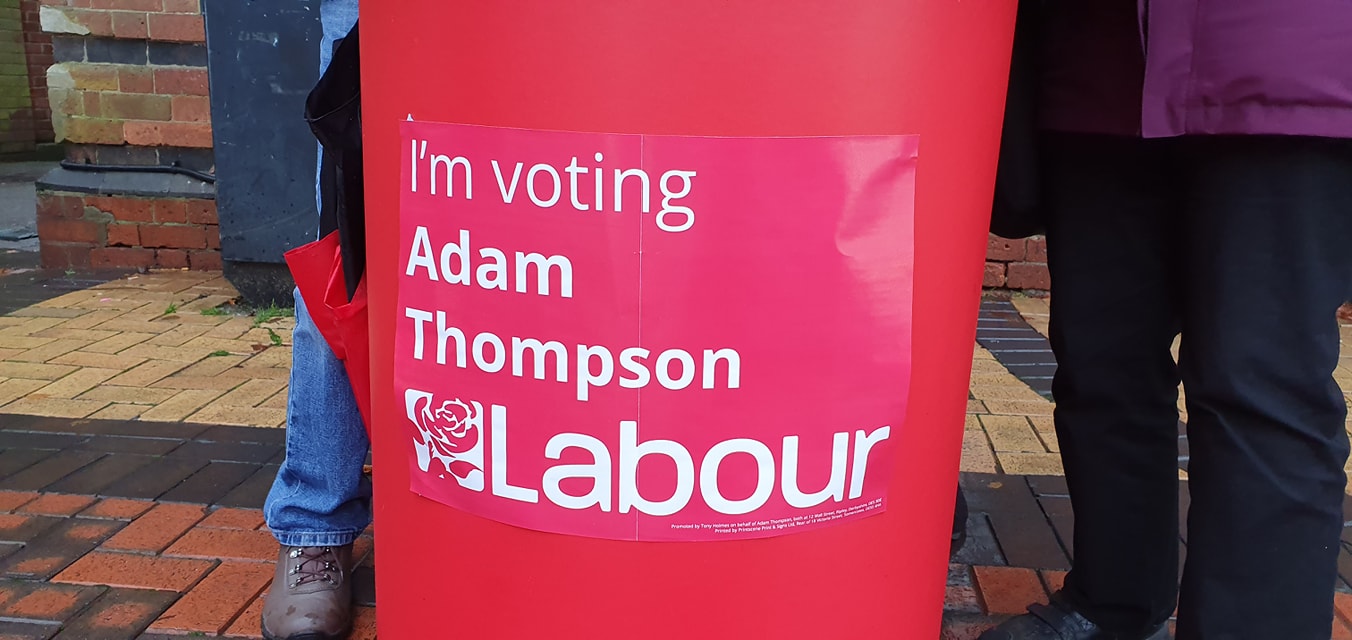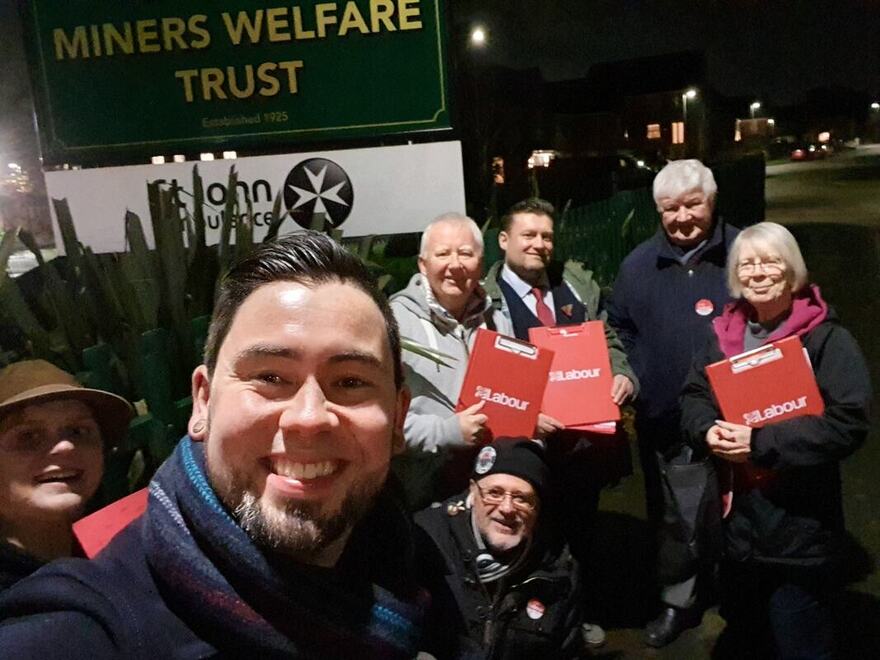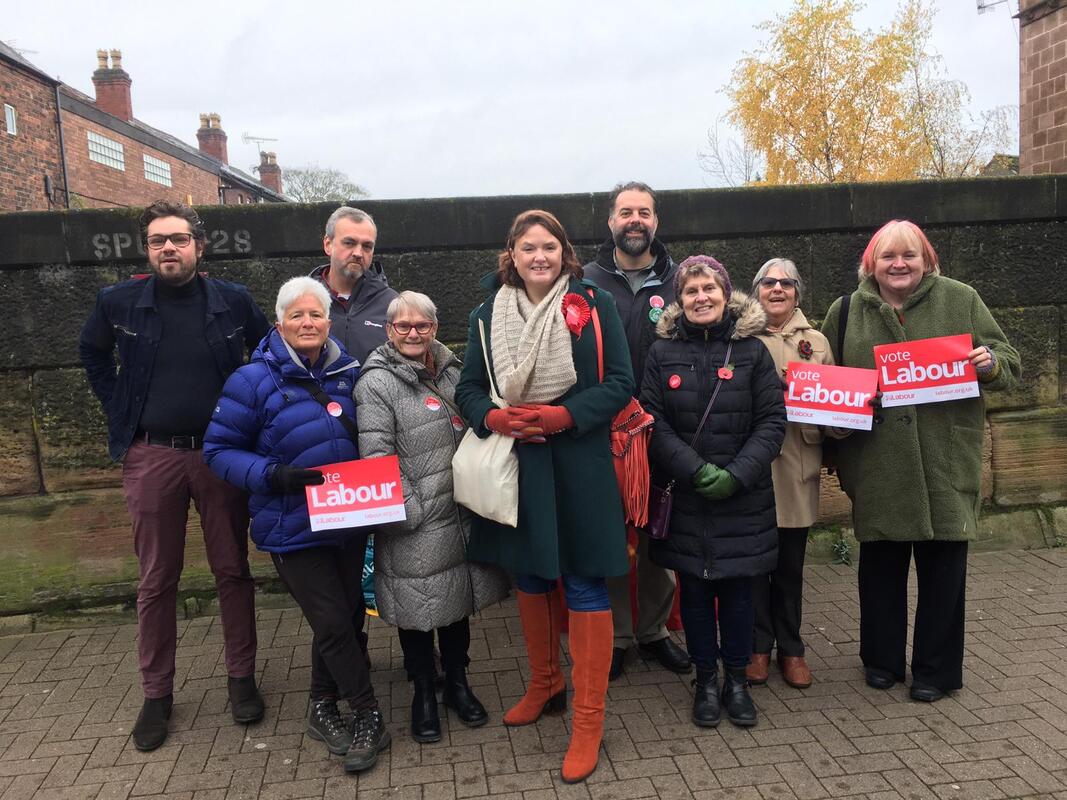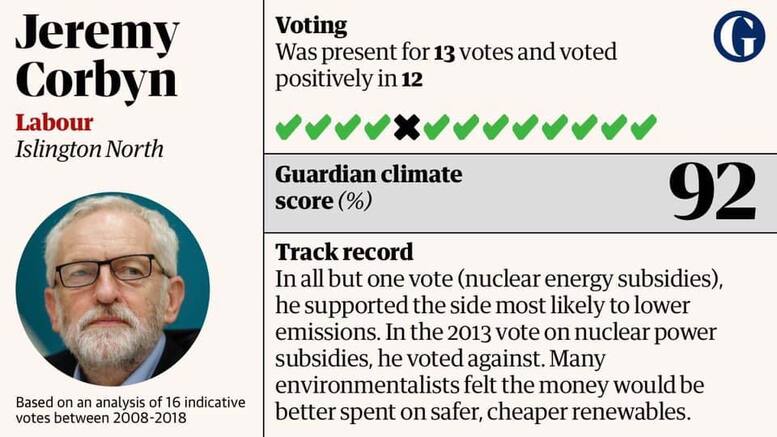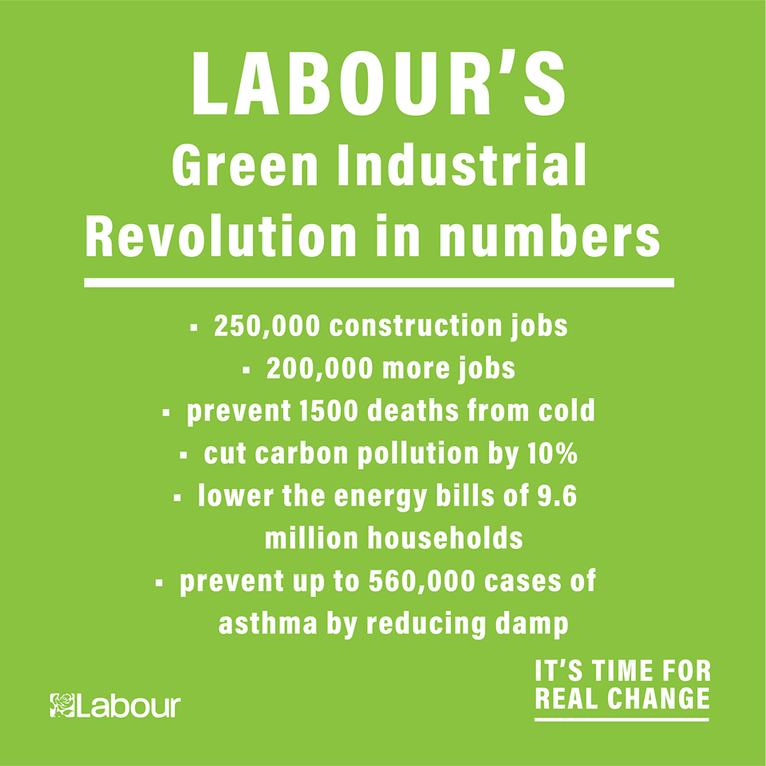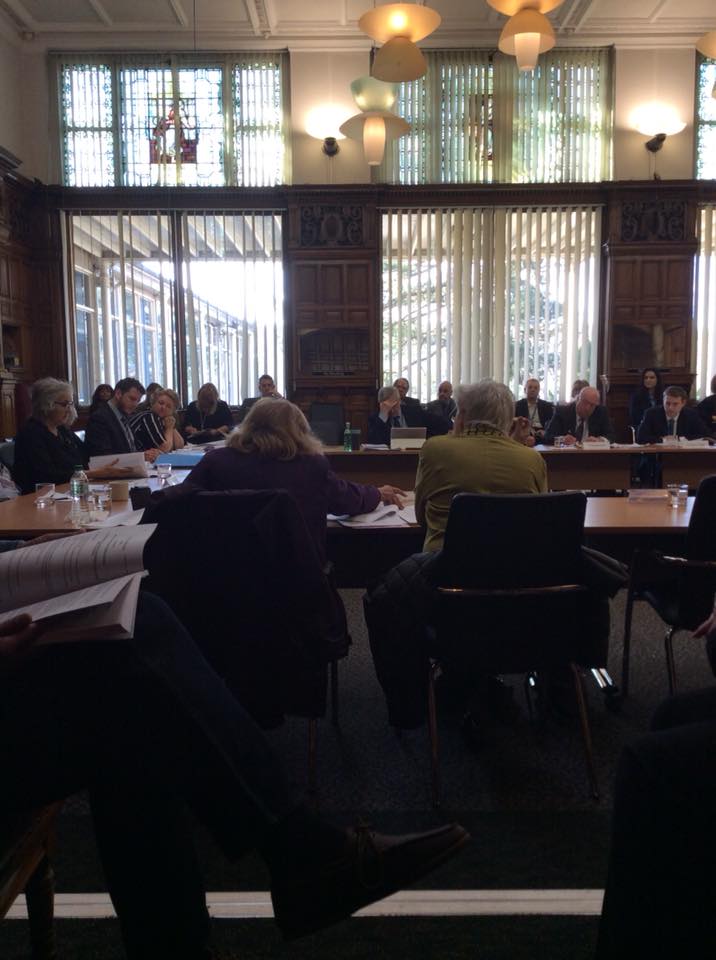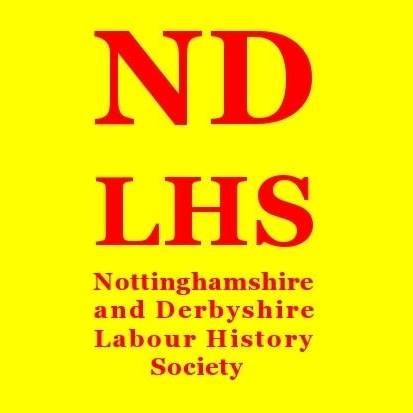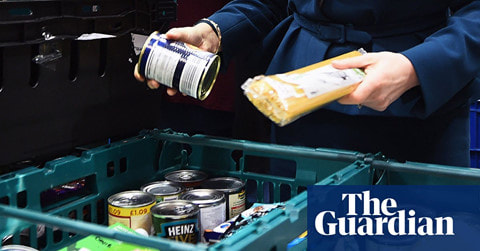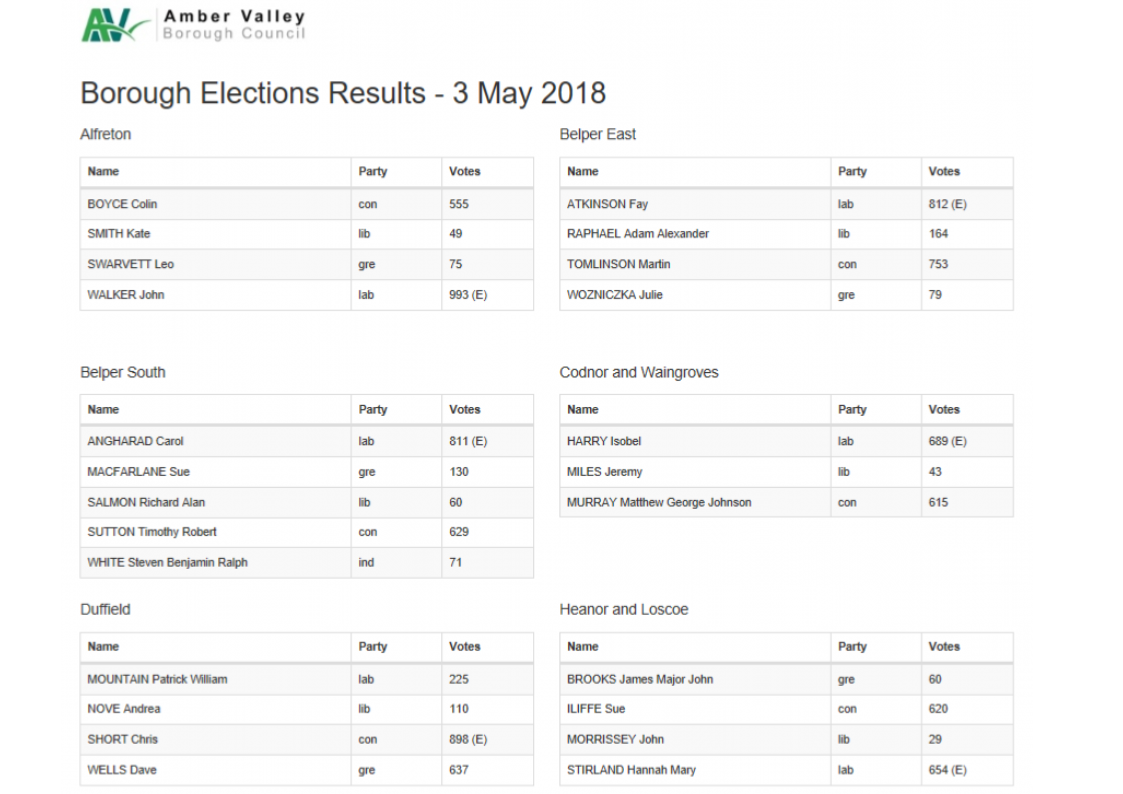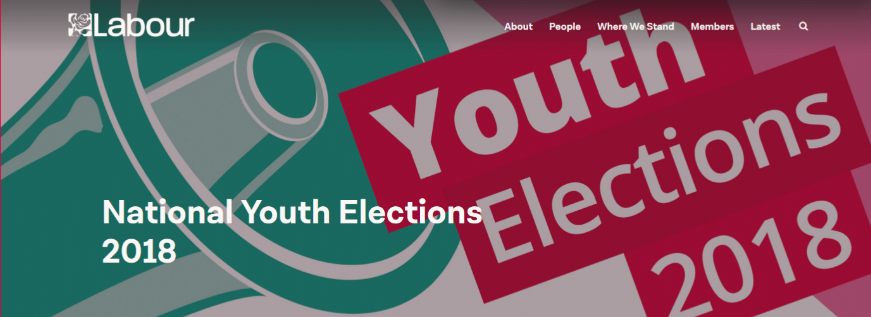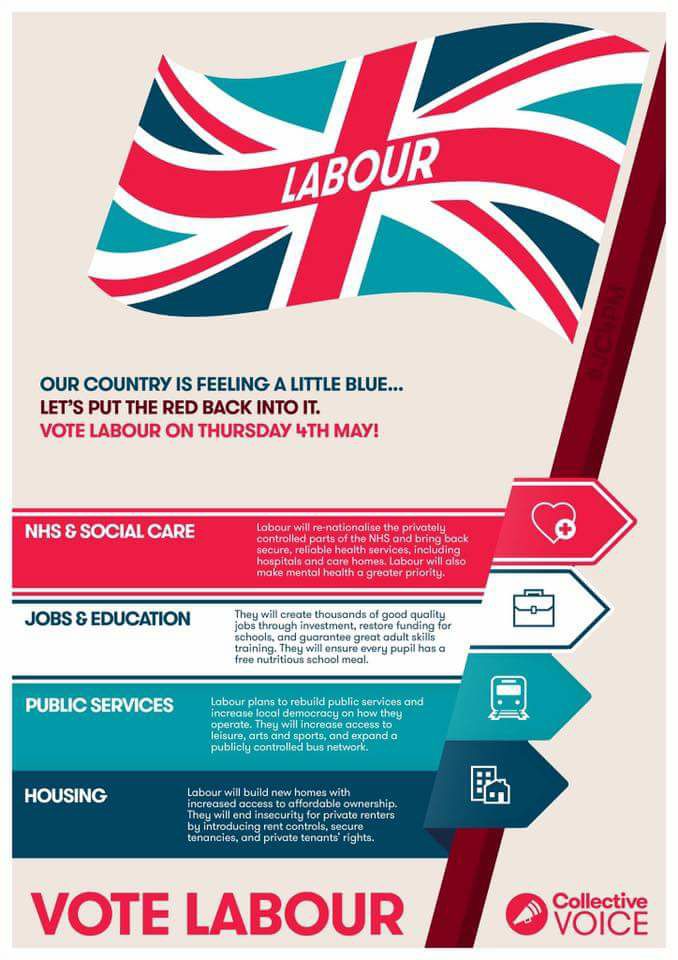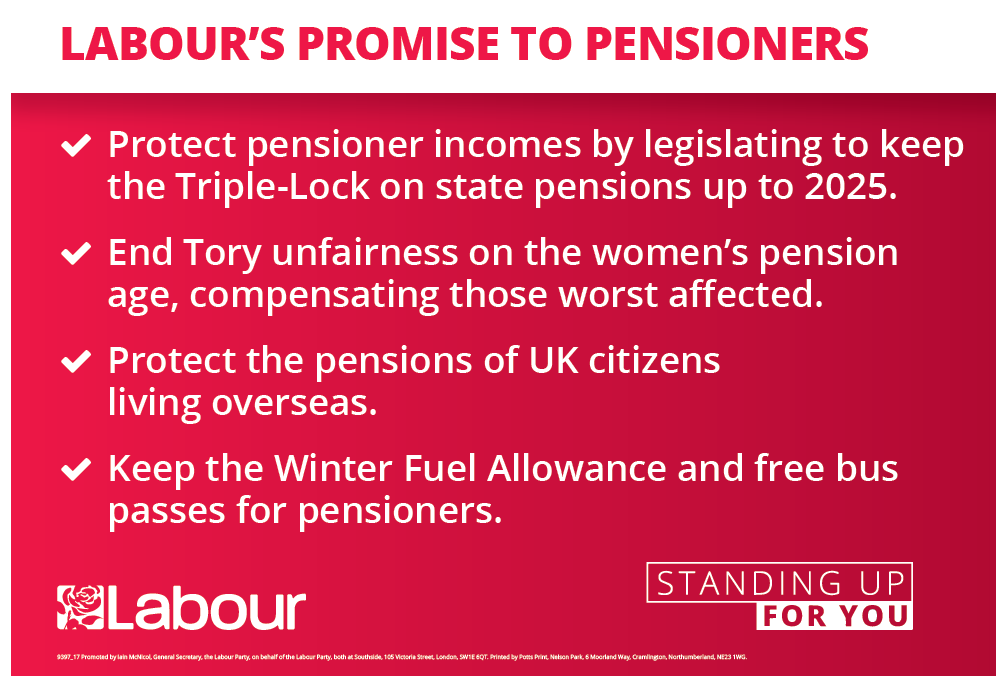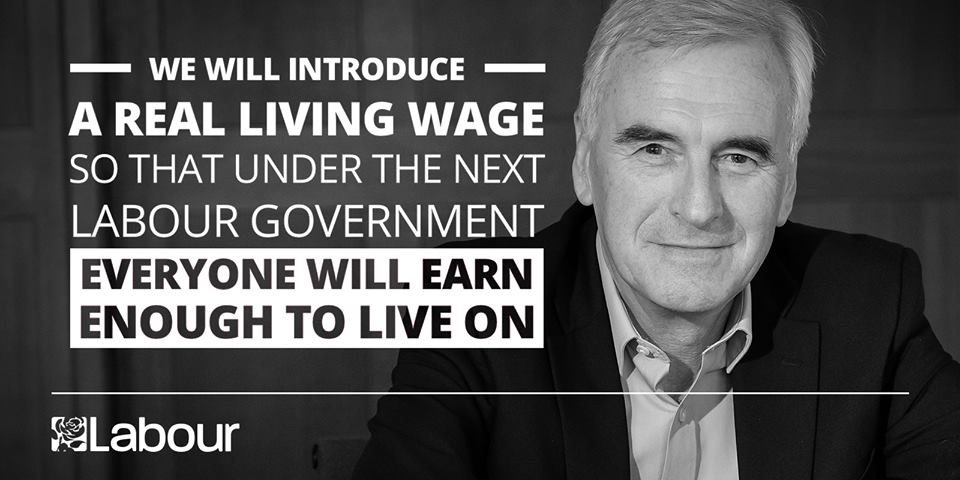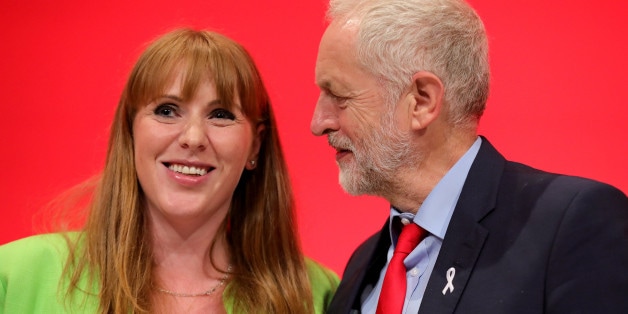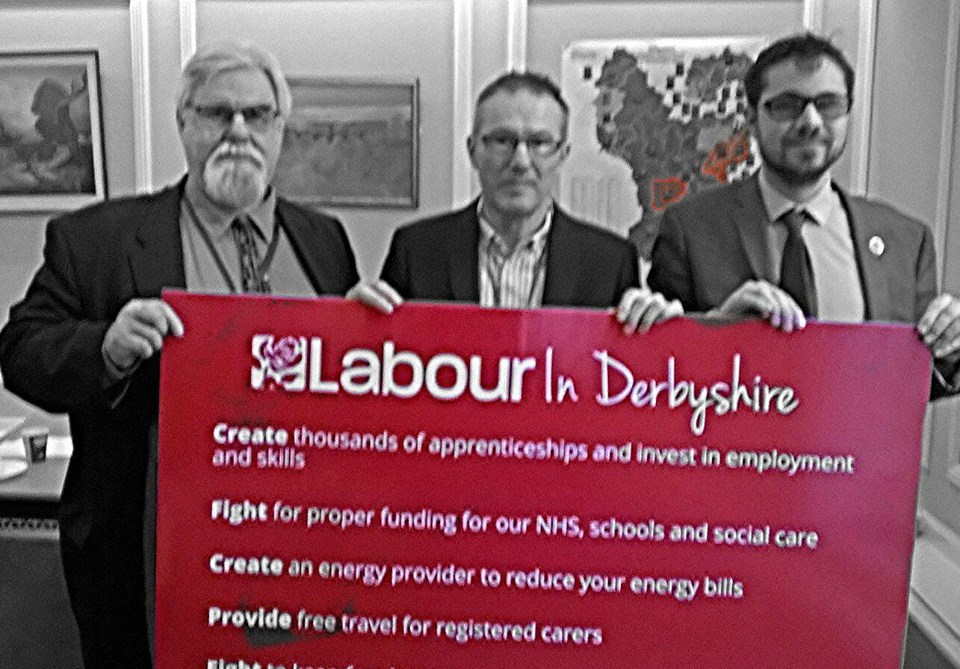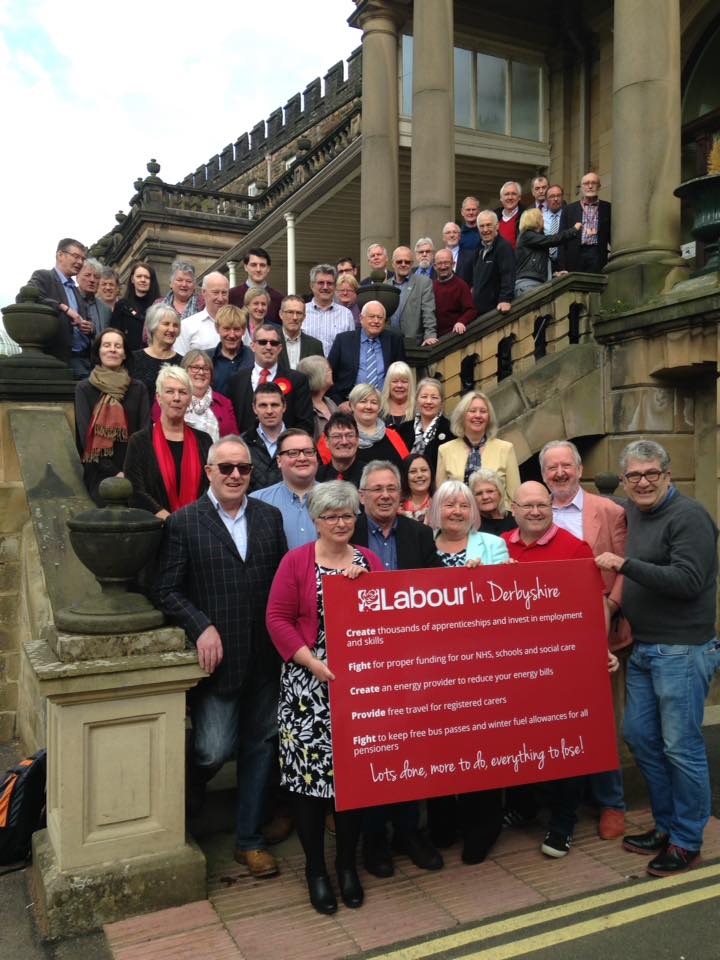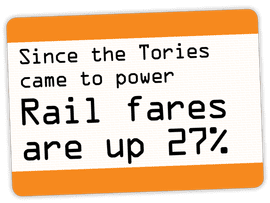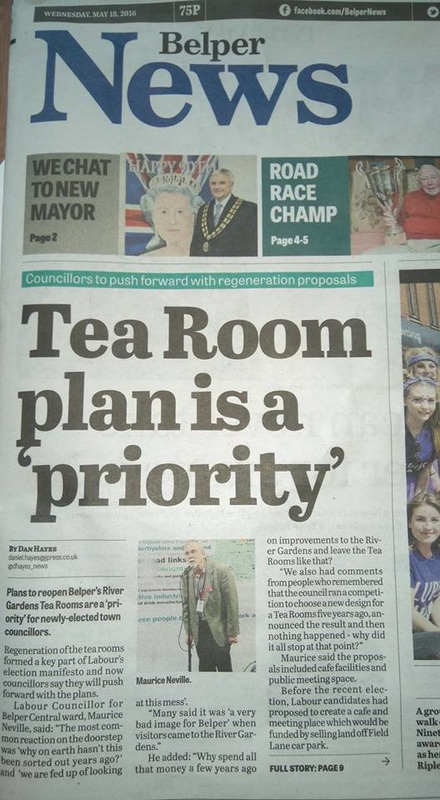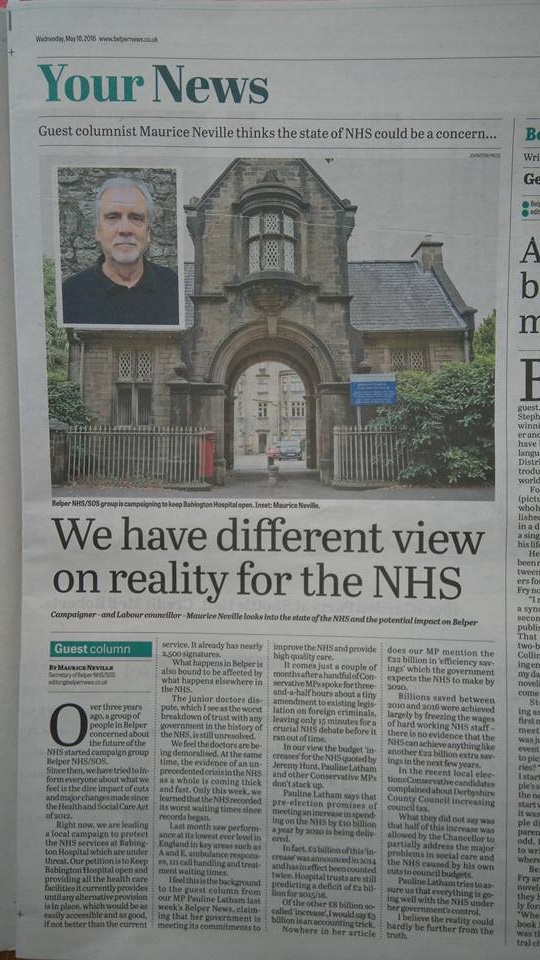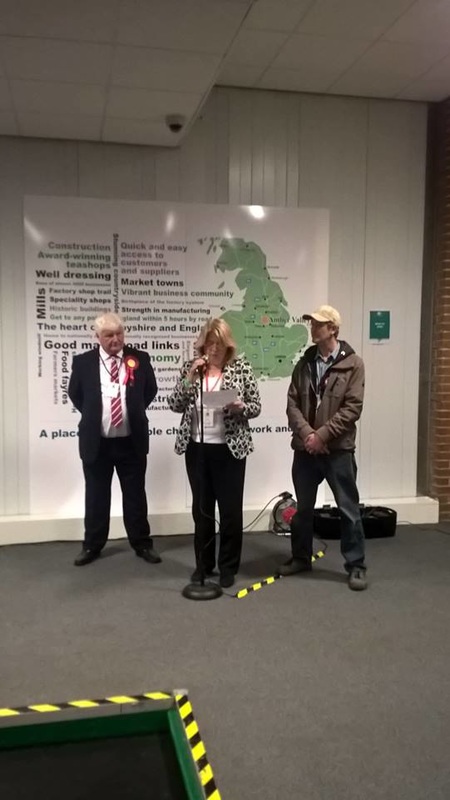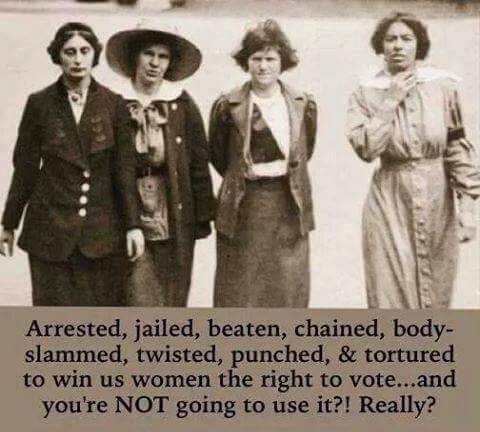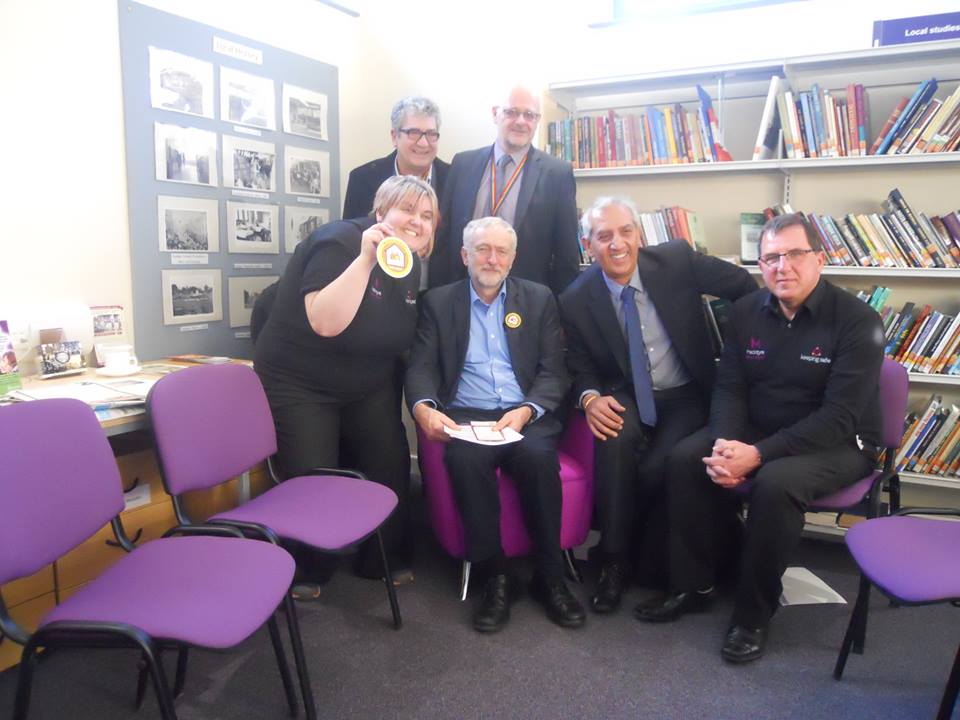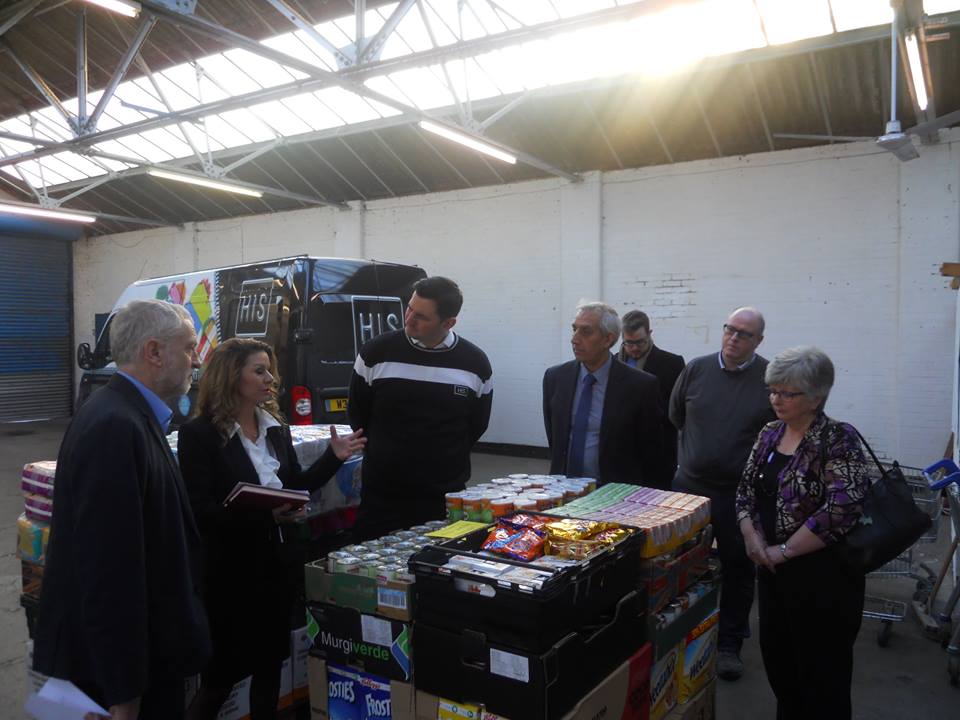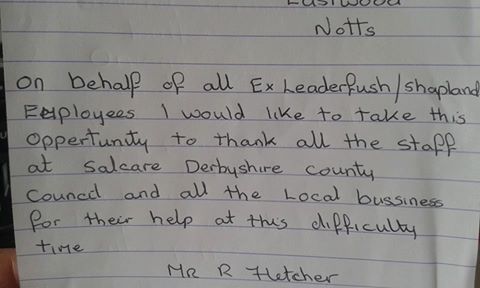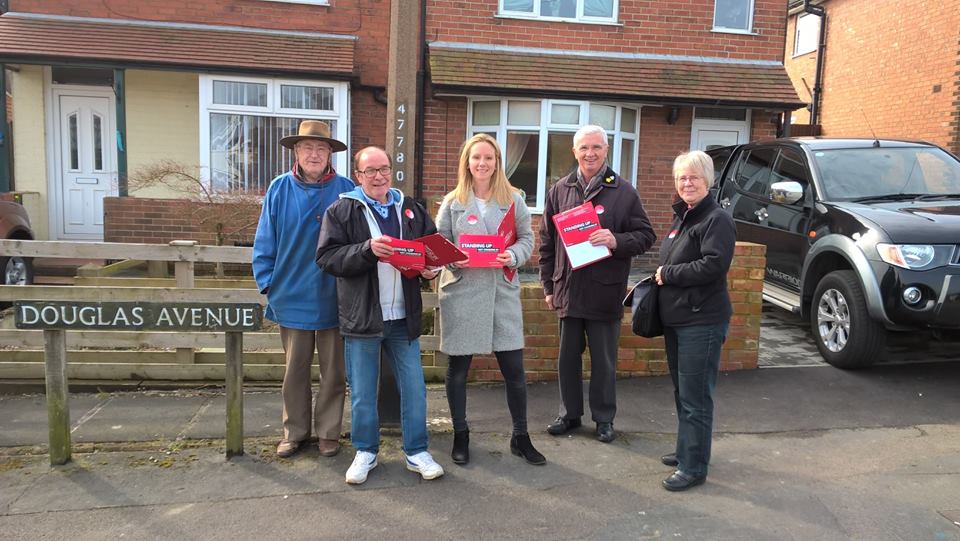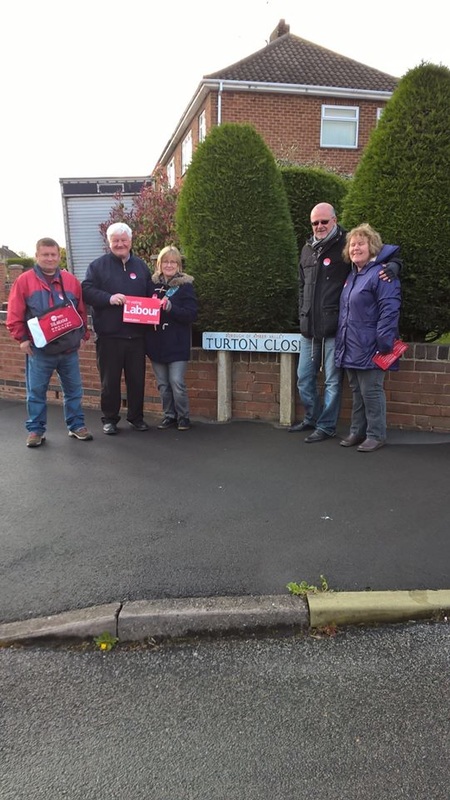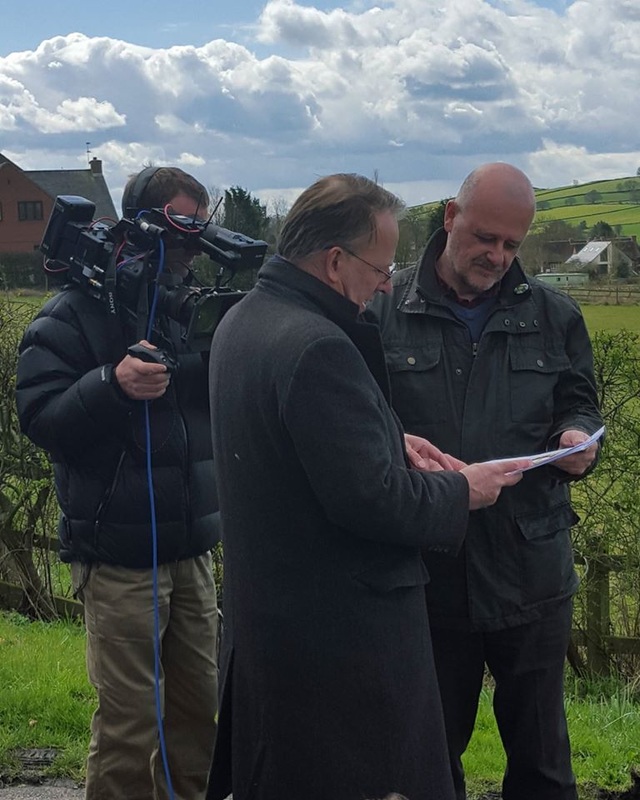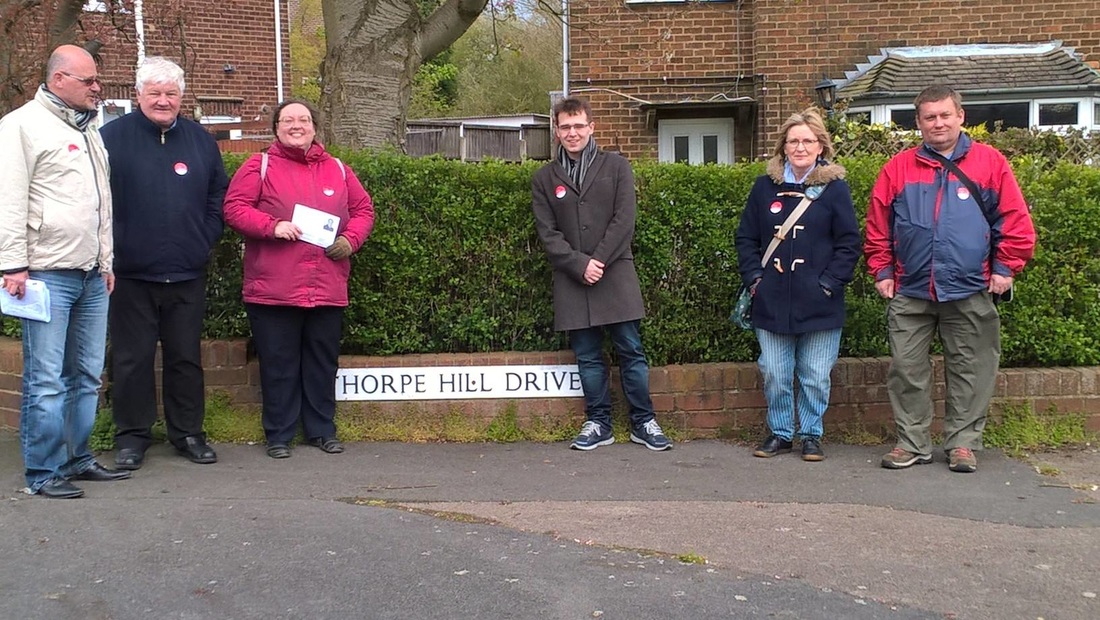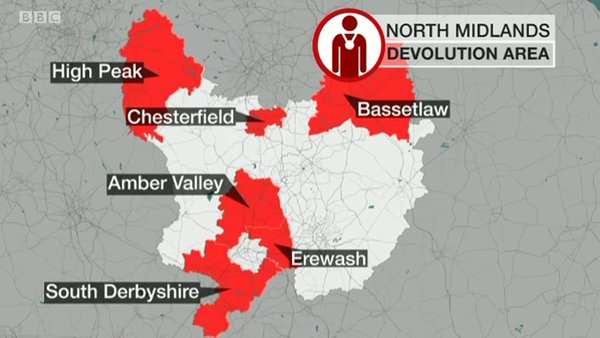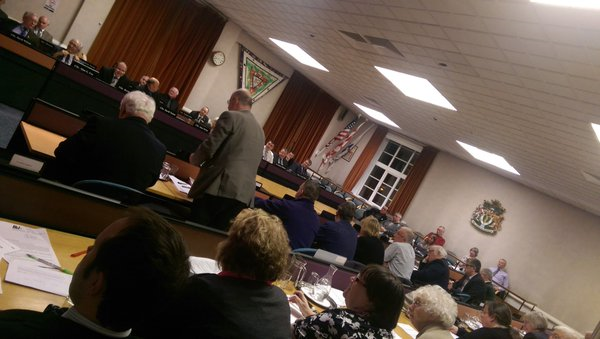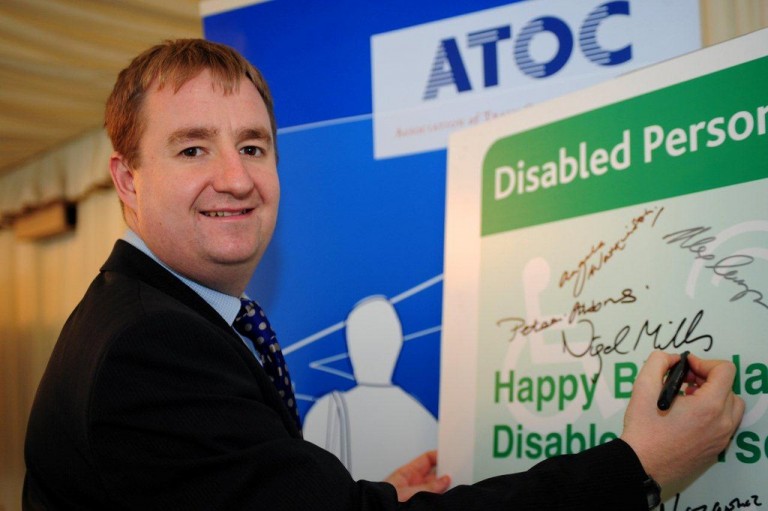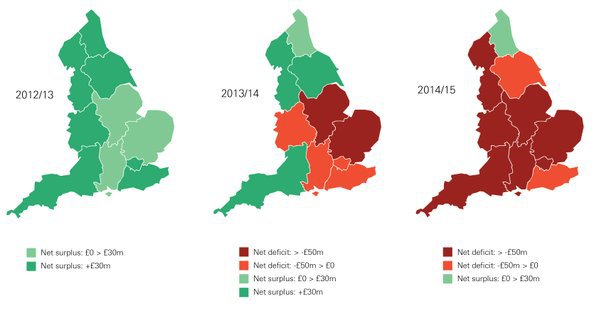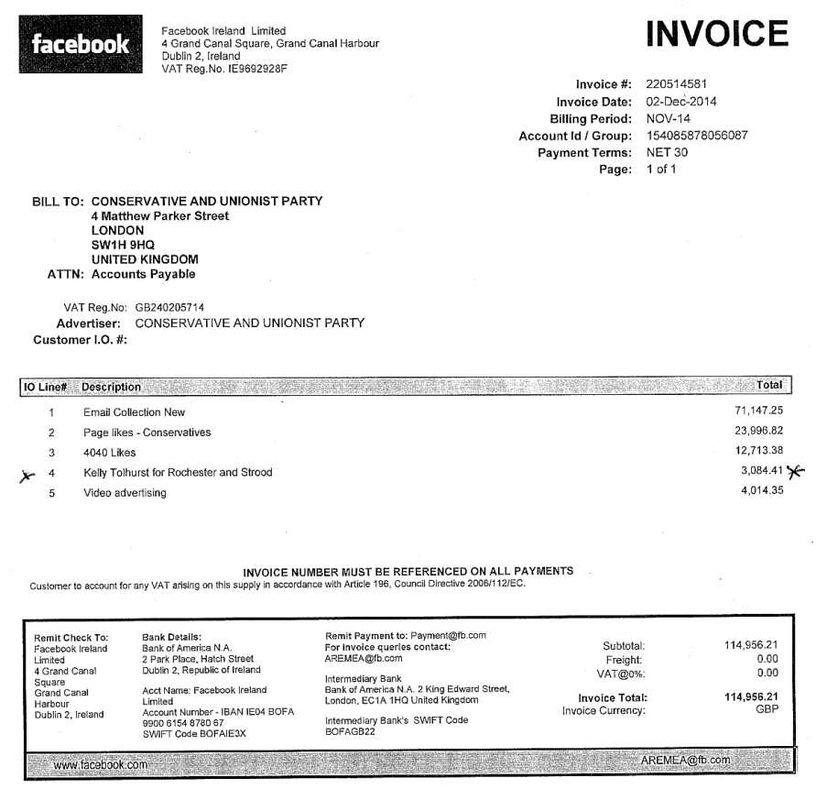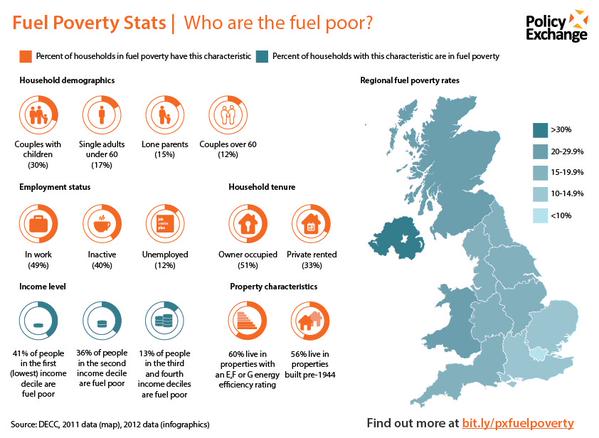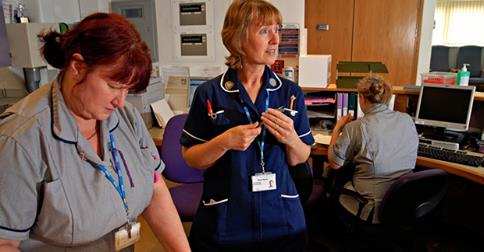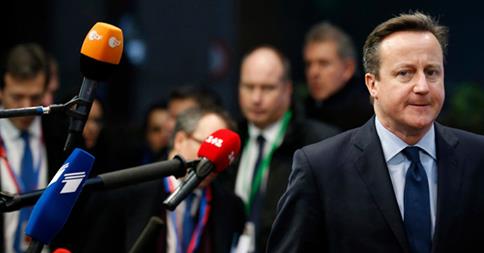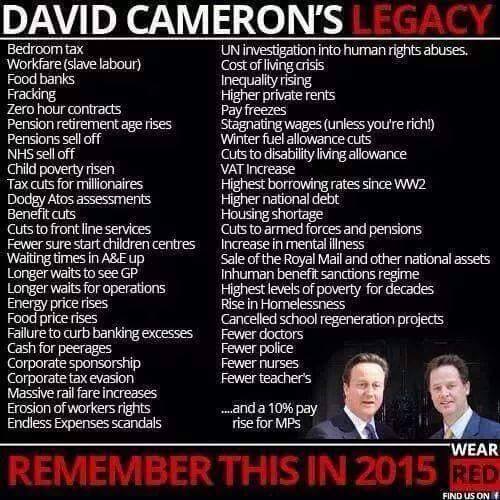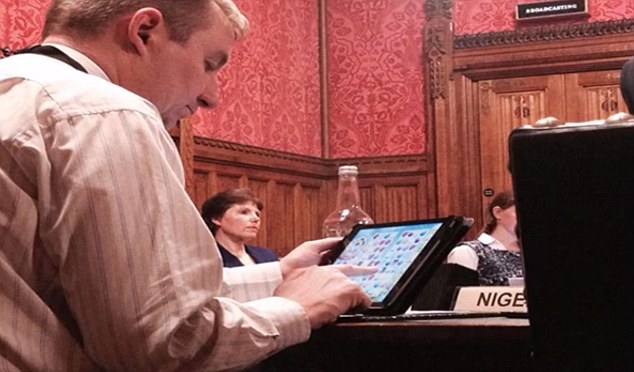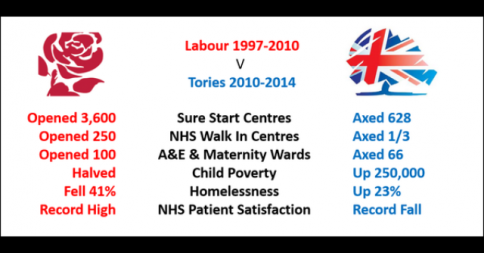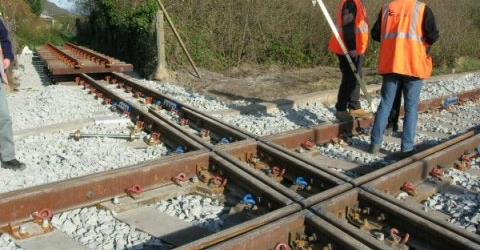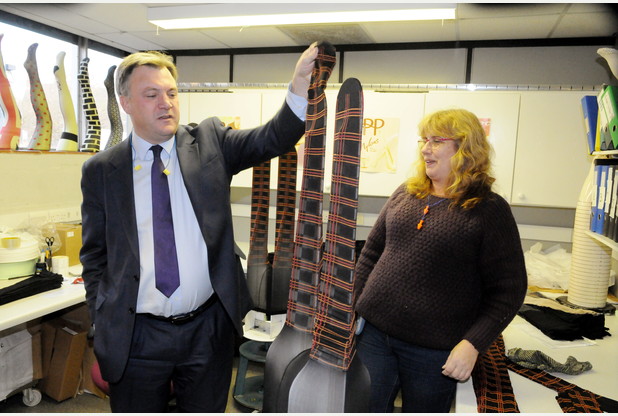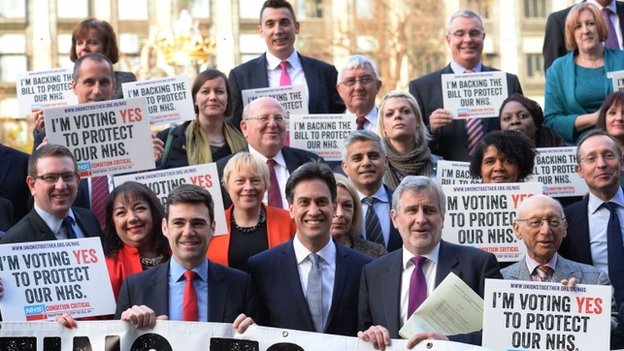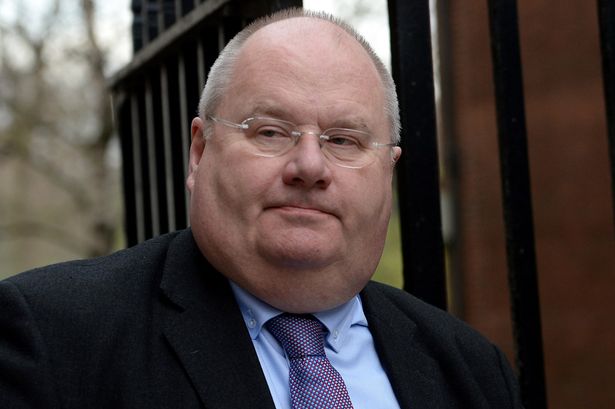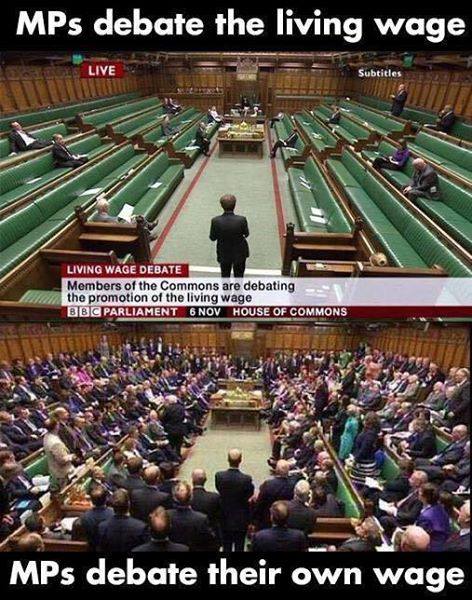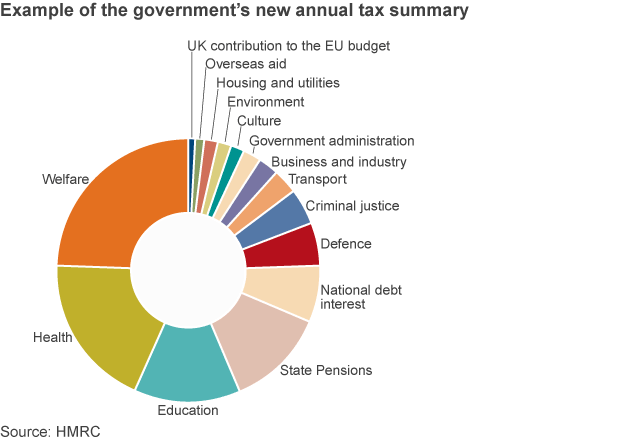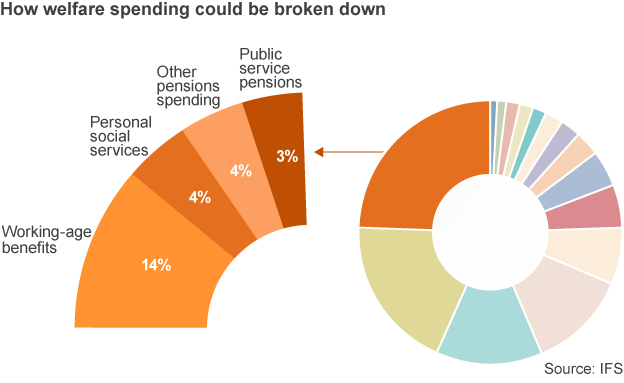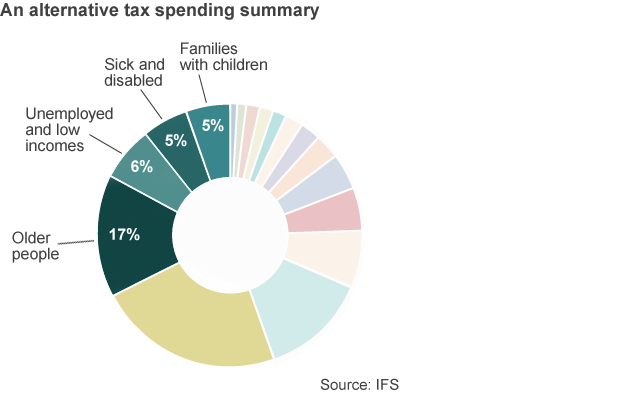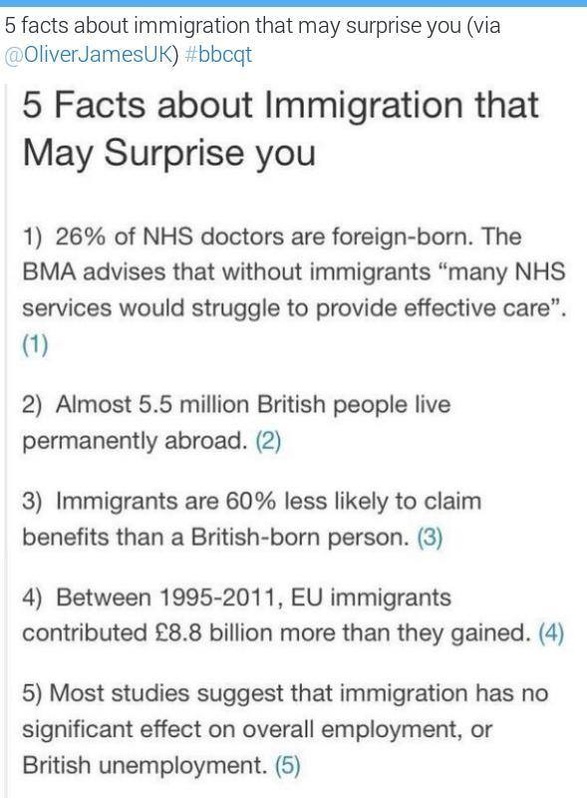News Feed 2019
The full list of Derbyshire Labour candidates and the constituencies they are standing in is as follows:
Adam Thompson - Amber Valley
Dennis Skinner - Bolsover
Toby Perkins - Chesterfield
Tony Tinley - Derby North
Dame Margaret Beckett - Derby South
Claire Raw - Derbyshire Dales
Catherine Atkinson - Erewash
Ruth George - High Peak
Emma Monkman - Mid Derbyshire
Adam Thompson - Amber Valley
Dennis Skinner - Bolsover
Toby Perkins - Chesterfield
Tony Tinley - Derby North
Dame Margaret Beckett - Derby South
Claire Raw - Derbyshire Dales
Catherine Atkinson - Erewash
Ruth George - High Peak
Emma Monkman - Mid Derbyshire
Amber Valley's new Parliamentary candidate Adam Thompson. Fantastic experience tonight launching my campaign this evening in Alfreton with the hard working members of Amber Valley Constituency Labour Party. Lots of hard work to follow and we're hitting the ground running!
The environment is in crisis and we need to act, now. My take on the climate crisis in Amber Valley is below 👇 and get in contact to let me know what you think!
Lovely morning in Heanor with the team talking to people about how Labour will transform our town centres with our five point plan to rebuild:
1 Ban ATM charges and stop bank branch and Post Office closures
2 Improve local bus services and provide free bus travel for under 25s
3 Deliver free public Wi-Fi in town centres
4 Establish a register of landlords of empty shops in each local authority
5 Bring the business rates system into the 21st century
✊✊✊
1 Ban ATM charges and stop bank branch and Post Office closures
2 Improve local bus services and provide free bus travel for under 25s
3 Deliver free public Wi-Fi in town centres
4 Establish a register of landlords of empty shops in each local authority
5 Bring the business rates system into the 21st century
✊✊✊
Winning in Amber Valley, week 1
We’ve had a brilliant first week and very many thanks to those who have already been out to help us win in Amber Valley. Print deadlines were met, doors were knocked and we all got a bit wet. Despite the damp, we’ve had a brilliant response so far on the doorstep and at the street stall, and are seeing a lot of people moving our way.
This week we have:
We’ve had a brilliant first week and very many thanks to those who have already been out to help us win in Amber Valley. Print deadlines were met, doors were knocked and we all got a bit wet. Despite the damp, we’ve had a brilliant response so far on the doorstep and at the street stall, and are seeing a lot of people moving our way.
This week we have:
- Knocked doors in Codnor and discussed how Labour is going to fix the NHS and social care with a programme of radical investment;
- Picked litter in Waingroves, discussing local issues with roads and traffic in the area;
- Knocked doors in Alfreton and talked about how Amber Valley needs an MP who will work for the community and not just sit around in parliament playing mobile games;
- Been drizzled on in the centre of Alfreton and talked to ordinary people about how we’re going to pay for our wealth of brilliant proposals by cracking down on tax avoidance by multinational tech companies;
- Hiked through Heanor talking about the benefits of full-fibre broadband, free at the point of use for everyone in the UK;
- Recorded a video on the environment and flooding in Ambergate (watch out for this one soon); and
- Hiked through Heanor again and discussed the devastating cuts that the Conservatives have made in government to the education sector and how much damage these have caused.
Another day another door knock! A lot of people this evening in Heanor were (understandably) asking "these policies sound great, but how are you going to pay for them?"
It's brilliant to be standing on such a radical manifesto that offers so much to so many, but that is also going to be completely costed. Labour will improve our society across the board by increasing tax just a little bit for the richest 5% of people (those earning over £80,000) and by cracking down on tax dodging multinational companies.
I can't wait for the full manifesto to come out this Thursday, it'sgoing to be brilliant!
It's brilliant to be standing on such a radical manifesto that offers so much to so many, but that is also going to be completely costed. Labour will improve our society across the board by increasing tax just a little bit for the richest 5% of people (those earning over £80,000) and by cracking down on tax dodging multinational companies.
I can't wait for the full manifesto to come out this Thursday, it'sgoing to be brilliant!
BELPER HEROINE ANNOUNCES BID TO BE THE NEXT MP FOR MID-DERBYSHIRE
Community and charity activist Emma Monkman has been selected unanimously to be the Labour Party’s candidate for ‘neglected’ Derbyshire constituency.
AN HEROIC BELPER woman, who received a top bravery award for averting the deaths of hundreds of aircraft passengers, has been picked as the Labour Party’s candidate in the race to be the next Member of Parliament for the constituency of Mid-Derbyshire.
Emma Monkman, 45, whose life-saving actions won national praise when she tackled a violent male passenger on a holiday flight, has topped a Labour Party parliamentary selection process for next month’s general election – and she is promising to fight for every person’s vote to bring real, positive change and hope to the constituency, which she claims has been neglected by ten years of austerity and missed investment opportunities.
“To have the opportunity to stand for election in the constituency where I live and work is a wonderful honour,” Emma says. “I, along with so many others, am fed-up at watching a succession of arrogant Conservative MPs taking ordinary people’s votes for granted in Derbyshire – and I promise to reverse this neglect by bringing real change to our area.”
Emma is no stranger to bringing change to people’s lives. Just over seventeen years ago, whilst she was employed as an aircraft safety attendant, she was thrust on to the national media stage following an act of remarkable, selfless bravery. On a flight from Manchester Airport to Malta, she wrestled an aggressive passenger to the ground after he attempted to open an exit door of a Boeing 757 aeroplane, as it hurtled down the runway to land at the popular tourist holiday destination.
“The burly man lunged for an emergency exit lever and I knew if he managed to open the door, even by a tiny amount, he would have endangered the safety of everyone on the flight,” she explains. “He’d been drinking alcohol, and when I saw him heading for the door I chased him down the aisle and pulled him to the ground. I just wanted to do the right thing and I was determined to protect and safeguard everyone on board.”
Had the drunken holiday-maker succeeded in opening the door, Emma would have probably been sucked into the aircraft’s engine and killed. The offender was prosecuted at court and subsequently jailed for drunken behaviour and endangering the safety of an aircraft.
Emma’s quick-thinking courageous accomplishment drew national media attention as well as praise from local law-enforcement agencies. She was presented with a special commendation from Greater Manchester Police – along with a national bravery award from the Royal Humane Society.
The Society, which was formed in 1774, described Emma’s actions as uniquely outstanding. Speaking at a special presentation event, Major General Christopher Tyler said: “We become used to hearing of amazing acts but, really, this one is truly in a league of its own. We have never had anything like it in the long history of the Society. If ever one of our awards was richly deserved, it is this one.”
Following the mid-air-rage incident, Emma was inspired to qualify as a private pilot. “I was really proud to do this,” she says. “And since then I’ve gone on to other transportation adventures – including setting up my very own motorbike instruction and training company.”
She’s also maintained a long-standing interest in politics and the environment. In addition to holding a degree in International Relations and a Master’s in Environmental Politics and Climate Change, Emma has volunteered for the British Red Cross, as well as serving on the board of directors for the Lyme Green Settlement and Rural Action Derbyshire charities.
And in May 2019, Emma’s interest in politics led to her applying to be a candidate in the local government elections. “I think if you wish to stand you should always try to do so in the area close to where you live or work – so I decided to put my name forward to be a councillor in my hometown of Belper,” Emma explains.
But the challenge to getting elected in the market town of Belper was daunting – as it had been dominated by the Conservative Party for many generations. “I must admit I do like a challenge and thought I could make a difference,” she says. “And with that I got out and about and spoke to so many wonderful, local people about issues that matter to their lives.”
Working with a team of Labour Party activists Emma developed a positive message and went about sharing her vision to local people. “I wanted to build a new, kinder form of politics. A place where younger and female candidates felt able and confident to contribute,” she says. Her hard work and passion paid off, resulting in her electoral victory as the ward councillor for Belper North on Amber Valley Borough Council – followed by another remarkable local polling success with a seat on Belper Town Council. “It was amazing to see the Labour Party sweep away years of Conservative neglect and entitlement – and five months on, we’re already seeing new, great things happening locally.”
Emma’s local community engagement activities began to attract praise from her colleagues on Amber Valley Borough Council and when a general election was called for 12 December, they encouraged her to stand for national political office. “There are so many issues facing the people of Mid-Derbyshire, such as affordable housing pressures, rising crime levels and a heightened frequency of flooding caused by climate change – and I want to do something about these challenges by making sure our area gets better national representation,” she says. “So I decided to put my name forward and I am delighted to be selected as the Labour Party’s candidate.”
Addressing a crowd of supporters in the town of Belper on Saturday 9 November, Emma announced that she is determined to transform Mid-Derbyshire economic and social fortunes by attracting enhanced financial investment to the area. “I want to create new, well-paid jobs for local people. I will strive to reduce crime by putting more police officers on our streets too,” she explains. “Additionally, I hope to strengthen environmental protection to ensure our communities are properly safeguarded against the growing threat of flooding and climate change.”
The constituency of Mid-Derbyshire – which is made up of Allestree, Borrowash, Belper, Little Eaton, Breadsall, Ockbrook, West Hallam, Stanley, Duffield, Spondon and Oakwood – has over 70,000 electors and Emma is determined to engage with as many people as possible during the four weeks of the election campaign. “I will make sure I get out and about and visit every corner of our wonderful constituency. Now is the time to reverse years of political decline and neglect – this truly is a unique opportunity to vote for real change and hope,” she says.
Emma acknowledges that adjusting to life as a Member of Parliament will not be straight-forward – but she thinks the people of Mid-Derbyshire are ready for change. “I am a resilient and active person – and I think our constituency needs someone who can work hard and be more visible in the local communities I hope to represent. I hope that by running a positive, fresh and vibrant campaign I can raise aspirations of what our future can look like - rather than everyone settling for another five years of more of the same invisible and tired set-up,” she explains.
Emma concludes: “The people of Mid-Derbyshire deserve to be represented by someone who cares passionately about our every part of our wonderful communities – rather than the chosen few. And I promise to do my very best for everyone with a message of hope and positive change.”
Community and charity activist Emma Monkman has been selected unanimously to be the Labour Party’s candidate for ‘neglected’ Derbyshire constituency.
AN HEROIC BELPER woman, who received a top bravery award for averting the deaths of hundreds of aircraft passengers, has been picked as the Labour Party’s candidate in the race to be the next Member of Parliament for the constituency of Mid-Derbyshire.
Emma Monkman, 45, whose life-saving actions won national praise when she tackled a violent male passenger on a holiday flight, has topped a Labour Party parliamentary selection process for next month’s general election – and she is promising to fight for every person’s vote to bring real, positive change and hope to the constituency, which she claims has been neglected by ten years of austerity and missed investment opportunities.
“To have the opportunity to stand for election in the constituency where I live and work is a wonderful honour,” Emma says. “I, along with so many others, am fed-up at watching a succession of arrogant Conservative MPs taking ordinary people’s votes for granted in Derbyshire – and I promise to reverse this neglect by bringing real change to our area.”
Emma is no stranger to bringing change to people’s lives. Just over seventeen years ago, whilst she was employed as an aircraft safety attendant, she was thrust on to the national media stage following an act of remarkable, selfless bravery. On a flight from Manchester Airport to Malta, she wrestled an aggressive passenger to the ground after he attempted to open an exit door of a Boeing 757 aeroplane, as it hurtled down the runway to land at the popular tourist holiday destination.
“The burly man lunged for an emergency exit lever and I knew if he managed to open the door, even by a tiny amount, he would have endangered the safety of everyone on the flight,” she explains. “He’d been drinking alcohol, and when I saw him heading for the door I chased him down the aisle and pulled him to the ground. I just wanted to do the right thing and I was determined to protect and safeguard everyone on board.”
Had the drunken holiday-maker succeeded in opening the door, Emma would have probably been sucked into the aircraft’s engine and killed. The offender was prosecuted at court and subsequently jailed for drunken behaviour and endangering the safety of an aircraft.
Emma’s quick-thinking courageous accomplishment drew national media attention as well as praise from local law-enforcement agencies. She was presented with a special commendation from Greater Manchester Police – along with a national bravery award from the Royal Humane Society.
The Society, which was formed in 1774, described Emma’s actions as uniquely outstanding. Speaking at a special presentation event, Major General Christopher Tyler said: “We become used to hearing of amazing acts but, really, this one is truly in a league of its own. We have never had anything like it in the long history of the Society. If ever one of our awards was richly deserved, it is this one.”
Following the mid-air-rage incident, Emma was inspired to qualify as a private pilot. “I was really proud to do this,” she says. “And since then I’ve gone on to other transportation adventures – including setting up my very own motorbike instruction and training company.”
She’s also maintained a long-standing interest in politics and the environment. In addition to holding a degree in International Relations and a Master’s in Environmental Politics and Climate Change, Emma has volunteered for the British Red Cross, as well as serving on the board of directors for the Lyme Green Settlement and Rural Action Derbyshire charities.
And in May 2019, Emma’s interest in politics led to her applying to be a candidate in the local government elections. “I think if you wish to stand you should always try to do so in the area close to where you live or work – so I decided to put my name forward to be a councillor in my hometown of Belper,” Emma explains.
But the challenge to getting elected in the market town of Belper was daunting – as it had been dominated by the Conservative Party for many generations. “I must admit I do like a challenge and thought I could make a difference,” she says. “And with that I got out and about and spoke to so many wonderful, local people about issues that matter to their lives.”
Working with a team of Labour Party activists Emma developed a positive message and went about sharing her vision to local people. “I wanted to build a new, kinder form of politics. A place where younger and female candidates felt able and confident to contribute,” she says. Her hard work and passion paid off, resulting in her electoral victory as the ward councillor for Belper North on Amber Valley Borough Council – followed by another remarkable local polling success with a seat on Belper Town Council. “It was amazing to see the Labour Party sweep away years of Conservative neglect and entitlement – and five months on, we’re already seeing new, great things happening locally.”
Emma’s local community engagement activities began to attract praise from her colleagues on Amber Valley Borough Council and when a general election was called for 12 December, they encouraged her to stand for national political office. “There are so many issues facing the people of Mid-Derbyshire, such as affordable housing pressures, rising crime levels and a heightened frequency of flooding caused by climate change – and I want to do something about these challenges by making sure our area gets better national representation,” she says. “So I decided to put my name forward and I am delighted to be selected as the Labour Party’s candidate.”
Addressing a crowd of supporters in the town of Belper on Saturday 9 November, Emma announced that she is determined to transform Mid-Derbyshire economic and social fortunes by attracting enhanced financial investment to the area. “I want to create new, well-paid jobs for local people. I will strive to reduce crime by putting more police officers on our streets too,” she explains. “Additionally, I hope to strengthen environmental protection to ensure our communities are properly safeguarded against the growing threat of flooding and climate change.”
The constituency of Mid-Derbyshire – which is made up of Allestree, Borrowash, Belper, Little Eaton, Breadsall, Ockbrook, West Hallam, Stanley, Duffield, Spondon and Oakwood – has over 70,000 electors and Emma is determined to engage with as many people as possible during the four weeks of the election campaign. “I will make sure I get out and about and visit every corner of our wonderful constituency. Now is the time to reverse years of political decline and neglect – this truly is a unique opportunity to vote for real change and hope,” she says.
Emma acknowledges that adjusting to life as a Member of Parliament will not be straight-forward – but she thinks the people of Mid-Derbyshire are ready for change. “I am a resilient and active person – and I think our constituency needs someone who can work hard and be more visible in the local communities I hope to represent. I hope that by running a positive, fresh and vibrant campaign I can raise aspirations of what our future can look like - rather than everyone settling for another five years of more of the same invisible and tired set-up,” she explains.
Emma concludes: “The people of Mid-Derbyshire deserve to be represented by someone who cares passionately about our every part of our wonderful communities – rather than the chosen few. And I promise to do my very best for everyone with a message of hope and positive change.”
There should be no doubt about Jeremy Corbyn and the Labour Party’s commitment to climate change and Labour’s Green Deal.
GREEN NEW DEAL
This is a historic day for the labour movement and the country. Labour, backed by seven trade unions, has committed to decarbonise Britain by 2030 as part of .a transformational, socialist Green New DealThe labour movement is united behind our ambitious vote-winning programme of green jobs, rapid decarbonisation, public ownership, green public transport for the many and internationalist solidarity.
Now we must take this radical vision to every corner of the country and build it from the ground up, in every workplace in every community in every town. We need a thousand Green New Deals across the country, and out movement will build them. The real fight for a Green New Deal has just begun."
This is a historic day for the labour movement and the country. Labour, backed by seven trade unions, has committed to decarbonise Britain by 2030 as part of .a transformational, socialist Green New DealThe labour movement is united behind our ambitious vote-winning programme of green jobs, rapid decarbonisation, public ownership, green public transport for the many and internationalist solidarity.
Now we must take this radical vision to every corner of the country and build it from the ground up, in every workplace in every community in every town. We need a thousand Green New Deals across the country, and out movement will build them. The real fight for a Green New Deal has just begun."
|
***UPDATE***
The Scrutiny committee voted along party lines and so the Tory cabinet decision stands. The consultation was allowed to stand as acceptable, which allows the Tories to continue with their dastardly plans. 😔 Just watching the proceedings at the Call-in meeting at which Derbyshire Labour are challenging Derbyshire Tories horrendous decision to make sweeping changes to the County Councils early help service, threatening to get rid of 200 staff. As Council Members who care the Labour Group are attending this meeting because we want to try to stop this happening. The Tories have just turned up mob handed because they were tipped off at the last minute. Trying to intimidate with numbers! Just exemplifies the Tory bully-boy tactics!!! #derbyshirelabour #standingupforthepeople #wecare https://www.peakfm.co.uk/news/local/leaked-report-shows-derbyshire-county-council-is-axing-200-staff-from-early-help-service/ |
Protests over decision to build on green belt land
During last night’s meeting (Monday, March 4), borough councillors, joined by around 70 residents both in the main chamber, downstairs listening via a tannoy system and outside in the bracing cold, debated for more than two-and-a-half hours.
They had to decide whether to delete 14 chunks of land from the protected green belt to free up space for 2,010 extra houses to be built by 2028.
On the night, two Conservative councillors, Cllr Ron Ashton (Ripley and Marehay) and Cllr Paul Moss (Ripley) broke from party lines to vote against the deletions.
Meanwhile, another Conservative member, Cllr Steven Evanson (Duffield) abstained from the vote.
The three Tory members mentioned above are among the 15 councillors (10 Conservative, five Labour), up for re-election in May.
One Labour member, Cllr Teresa Curran (Heanor), was absent from the meeting.
All in all, this brought the final tally of votes to 22 for, 21 against and one abstention - which saw the green belt deletions approved.
Had the vote been a deadlock, Mayor Angela Ward (Conservative), would have had the casting vote.
They had to decide whether to delete 14 chunks of land from the protected green belt to free up space for 2,010 extra houses to be built by 2028.
On the night, two Conservative councillors, Cllr Ron Ashton (Ripley and Marehay) and Cllr Paul Moss (Ripley) broke from party lines to vote against the deletions.
Meanwhile, another Conservative member, Cllr Steven Evanson (Duffield) abstained from the vote.
The three Tory members mentioned above are among the 15 councillors (10 Conservative, five Labour), up for re-election in May.
One Labour member, Cllr Teresa Curran (Heanor), was absent from the meeting.
All in all, this brought the final tally of votes to 22 for, 21 against and one abstention - which saw the green belt deletions approved.
Had the vote been a deadlock, Mayor Angela Ward (Conservative), would have had the casting vote.
SAVE Amber Valley Greenbelt
28 February at 15:37Labour group Leader, Chris Emmas-Williams asked for Mondays meeting to be moved to a bigger venue, so that the public could all be accommodated.
The response was that there was no need to do so. Let us see how many turn up.
28 February at 15:37Labour group Leader, Chris Emmas-Williams asked for Mondays meeting to be moved to a bigger venue, so that the public could all be accommodated.
The response was that there was no need to do so. Let us see how many turn up.
Unfortunately, the Conservatives dreadful plans, for the Greenbelt deletion and housing proposals passed tonight.
All Labour councillors voted against - it is both party policy, and in our manifesto to protect the Greenbelt - and it is the right thing to do for so many reasons.
It was a wonderful turnout and great support again - thank you one and all.
BULLSMOOR
The Conservative leader, Kevin Buttery, refused to allow a separate vote on putting Bullsmoor into the Greenbelt - insisting the choice was effectively 14 sites out and one site in or nothing.
That is like saying you can keep your left arm, but you have to sacrifice your right one.
We will all be delighted at this inclusion that we have long seen as an anomaly that needed correction.
IT'S NOT OVER
But it isn't over. Now there will be a six week consultation where we can tell the inspector exactly what we think about the inclusion of these sites.
And then there will be the opportunity to speak against including sites in the local plan, when the hearings commence.
What is clear is that there are no special circumstances to justify building on the Greenbelt.
WHERE SHOULD WE BUILD?
As the public and the Labour councillors said, there needs to be a proper Brownfield assessment, to bring forward more brownfield sites.
There also should be an assessment of the employment land allocation, as there is currently an oversupply, and some of this could be changed to housing.
Finally, the special landscape area in the west of the borough, around idridgehey, Shottle and Hazelwood has seen no significant development, and sites should be considered in these 'safe' tory areas.
Keep up the fight!
Belpers Labour Cllrs Ben Bellamy, Carol Angharad, Fay Atkinson and Maurice Neville
All Labour councillors voted against - it is both party policy, and in our manifesto to protect the Greenbelt - and it is the right thing to do for so many reasons.
It was a wonderful turnout and great support again - thank you one and all.
BULLSMOOR
The Conservative leader, Kevin Buttery, refused to allow a separate vote on putting Bullsmoor into the Greenbelt - insisting the choice was effectively 14 sites out and one site in or nothing.
That is like saying you can keep your left arm, but you have to sacrifice your right one.
We will all be delighted at this inclusion that we have long seen as an anomaly that needed correction.
IT'S NOT OVER
But it isn't over. Now there will be a six week consultation where we can tell the inspector exactly what we think about the inclusion of these sites.
And then there will be the opportunity to speak against including sites in the local plan, when the hearings commence.
What is clear is that there are no special circumstances to justify building on the Greenbelt.
WHERE SHOULD WE BUILD?
As the public and the Labour councillors said, there needs to be a proper Brownfield assessment, to bring forward more brownfield sites.
There also should be an assessment of the employment land allocation, as there is currently an oversupply, and some of this could be changed to housing.
Finally, the special landscape area in the west of the borough, around idridgehey, Shottle and Hazelwood has seen no significant development, and sites should be considered in these 'safe' tory areas.
Keep up the fight!
Belpers Labour Cllrs Ben Bellamy, Carol Angharad, Fay Atkinson and Maurice Neville
This is happening in parts of Amber Valley and Belper, but this month 25 Tory councillors unanimously voted against stepping up the efforts by our Borough Council to work with the NHS and other partners to do something about it. All Labour councillors voted in favour. May 2019 is the time to vote for a change.
The life expectancy of women in the most deprived areas of England is falling, new research has revealed.
Previous research has shown those in more affluent areas have a greater life expectancy than those in poorer ones, but researchers have found the gap is widening, with experts saying lives are being lost to preventable and treatable diseases as a result of rising poverty.
The team say the growing gap is probably down to a combination of factors, including the relatively high price of healthy food and difficulty accessing healthcare – factors they say have been exacerbated by issues such as the gig economy and austerity policies.
“We should measure a policy by its impacts on inequality,” said Majid Ezzati, co-author of the study and professor of global environmental health at Imperial College London, adding that reforms such as universal credit have contributed to an increase in poverty.
This year researchers found British women had a shorter life expectancy than those in countries including Spain, France and Greece. Separately, figures from the Office for National Statistics have recently revealed progress in life expectancy has stalled for both men and women in England, and gone backwards in Scotland and Wales.
British women live shorter lives than most other Europeans
Read moreThe authors of the latest study say their findings highlight the importance of looking beyond the big picture. “Once again this is a situation of … not noticing what is happening to the poorest until it actually starts showing up in the average,” said Ezzati.
Prof Alan Walker of the University of Sheffield, who was not involved in the work, said the poorest are paying for government austerity with their lives.
“While these findings are shocking they are sadly not surprising since, as the UN rapporteur on poverty and human rights has just pointed out, the UK government has pursued policies for the past eight years that were intended to fall most heavily on the poorest,” he said. “‘We are all in this together’ was always a cruel joke.”
The life expectancy of women in the most deprived areas of England is falling, new research has revealed.
Previous research has shown those in more affluent areas have a greater life expectancy than those in poorer ones, but researchers have found the gap is widening, with experts saying lives are being lost to preventable and treatable diseases as a result of rising poverty.
The team say the growing gap is probably down to a combination of factors, including the relatively high price of healthy food and difficulty accessing healthcare – factors they say have been exacerbated by issues such as the gig economy and austerity policies.
“We should measure a policy by its impacts on inequality,” said Majid Ezzati, co-author of the study and professor of global environmental health at Imperial College London, adding that reforms such as universal credit have contributed to an increase in poverty.
This year researchers found British women had a shorter life expectancy than those in countries including Spain, France and Greece. Separately, figures from the Office for National Statistics have recently revealed progress in life expectancy has stalled for both men and women in England, and gone backwards in Scotland and Wales.
British women live shorter lives than most other Europeans
Read moreThe authors of the latest study say their findings highlight the importance of looking beyond the big picture. “Once again this is a situation of … not noticing what is happening to the poorest until it actually starts showing up in the average,” said Ezzati.
Prof Alan Walker of the University of Sheffield, who was not involved in the work, said the poorest are paying for government austerity with their lives.
“While these findings are shocking they are sadly not surprising since, as the UN rapporteur on poverty and human rights has just pointed out, the UK government has pursued policies for the past eight years that were intended to fall most heavily on the poorest,” he said. “‘We are all in this together’ was always a cruel joke.”
Derbyshire County Council Tories take out their ideological dogma on the poor and vulnerable Unemployment centre loses £100k funding
Chris Fawcett BBC News
A centre for out-of-work people will have to shut some of its offices after it lost £100,000 of funding.
The Derbyshire Unemployed Workers Centre operates 16 outreach locations across the county providing advice but says some of these will have to be closed after losing funding from the county council.
'It's very disappointing that they've decided to do this, especially at a time when people are looking at the issues facing the poor and vulnerable." Colin Hampton Centre Co-ordinator
Derbyshire County Council said it was trying to become more efficient, and wanted a new service to reach more people in all areas of the county.
Chris Fawcett BBC News
A centre for out-of-work people will have to shut some of its offices after it lost £100,000 of funding.
The Derbyshire Unemployed Workers Centre operates 16 outreach locations across the county providing advice but says some of these will have to be closed after losing funding from the county council.
'It's very disappointing that they've decided to do this, especially at a time when people are looking at the issues facing the poor and vulnerable." Colin Hampton Centre Co-ordinator
Derbyshire County Council said it was trying to become more efficient, and wanted a new service to reach more people in all areas of the county.
News Feed 2017
|
|
Only four days into the Tory campaign and Theresa May has refused to commit to maintaining the pensions triple lock, just as Philip Hammond refused to commit to it on Tuesday.
Theresa May’s refusal to commit the Tories to maintaining the pensions triple lock only further proves the Tories are abandoning older people. It’s now clear pension protections are now in jeopardy. Labour will stand up for older people by maintaining the pensions triple lock and by keeping the winter fuel allowance and free bus passes so that the elderly can go about their lives with the dignity they deserve. |
Today our Shadow Chancellor of the Exchequer, John McDonnell, announced that under the next Labour government we will write a real Living Wage into law so everyone will earn enough to live on.
Labour’s Free School Meals Policy Will Make A Difference To The Lives Of Countless Children
As a teacher, just like a parent, you want the best for children. I’ve been a teacher for 27 years, and in that time I have taught hundreds of children. My job is to help them all reach their potential, no matter what their background.
It might seem odd that the subject I am writing about is free school meals, but the benefits of universal access for all children are huge, for both the health and attainment of pupils.
Today, Jeremy Corbyn and Angela Rayner will announce Labour’s policy to provide access to free school meals for all primary school children, and it is one I welcome.
As a teacher, just like a parent, you want the best for children. I’ve been a teacher for 27 years, and in that time I have taught hundreds of children. My job is to help them all reach their potential, no matter what their background.
It might seem odd that the subject I am writing about is free school meals, but the benefits of universal access for all children are huge, for both the health and attainment of pupils.
Today, Jeremy Corbyn and Angela Rayner will announce Labour’s policy to provide access to free school meals for all primary school children, and it is one I welcome.
Belper County Cllr John Owen, Alport and Derwent Candidate Jyoti Wilkinson, and Horsley Candidate John Porter with Derbyshire Labour pledges to ensure nobody in Derbyshire gets left behind.
Launching Labour's Manifesto at Derbyshire County Council today. — with Cllr Damien Greenhalgh.
Under pressure in PMQs from Jeremy Corbyn, who was questioning her on her so-called “fair funding formula” for schools that will see each state school pupil lose seven per cent of their current funding, in real terms, by 2020 – on top of 6.5 per cent in previously-announced cuts, Theresa May showed us her dark side. When Mr Corbyn pointed out that she was starving state schools in order to support her own grammar school vanity project, Mrs May attacked him for sending his own child to a grammar school. Corbyn never wanted any child of his to go to grammar school and it we are told his marriage ended because of arguments on this subject. May, not just dishonest but viciously dishonest.
It's time for a new approach to our railways - Labour will bring our railways into public ownership, keeping fares down
|
Labour's plan for a better railway• Bring our railways into public ownership
• Keep fares down by running services on a not-for-profit basis • Invest in our country and our railways, putting passengers before profit The Conservatives are failing rail passengersSince the Tories came to power rail fares have rocketed by 27% - that's a rise three times faster than the growth in wages. Some season tickets are up by over 40%. Under-investment is leading to chaos and cost to commuters. We were told that higher fares would fund investment, but vital projects to improve reliability have been delayed for years. Passengers are paying even more to travel on increasingly overcrowded and unreliable trains. Labour will put passengers firstThe Tories can't admit it, but rail privatisation has been a failure. Every year, millions of pounds which could go on improvements is handed to shareholders. Rigid contracts make it harder to deal with overcrowding. Labour will put passengers first, bringing rail into public ownership. Routes will naturally return to public ownership as private contracts expire, meaning profits can be re-invested to improve services & hold fares down. |
CLICK HERE to Back Labour's plan for a better railway
|
News Feed 2016
|
The Tories are proposing the following
That consultation be undertaken on the proposed closure of 3 Town Centre Offices in Alfreton, Belper and Heanor and the centralisation of the service at the Ripley Town Centre Office and that the outcome of the consultation process be reported to a future Council meeting for a decision. 2.2 That an annual charge of £40 be reintroduced for the Green Waste collection service commencing in March 2017, subject to the service only continuing if it is cost neutral. 2.3 That the decisions which are to be actioned by Management Team be noted and their implementation be monitored by the Cabinet. 2.4 That it be agreed that the Financial Plan should be amended to include for the Borough element of Council Tax to be increased from 1 April 2017, 1 April 2018 and 1 April 2019 by £5 on a Band D property and pro rata for the other bands for each year. 2.5 That a contribution of £1million per annum is credited to the General Fund Reserve from New Homes Bonus on 1 April 2017, 1 April 2018 and 1 April 2019. 2.6 That Burial Charges be increased by 2% per annum or by 1% above RPI (whichever figure is higher) from 1 August 2016, 1st April 2017, 1st April 2018 and 1st April 2019 subject to the service overall being no more than cost neutral. 2.7 That a budget for severance costs of £600,000 is created from the General Fund Reserve. Amber Valley Borough Councillors are being asked to reintroduce an annual charge for the Council’s garden waste service, starting in March next year.
The service, costing £350,000 per year, has been free to users since 2013, when a £40 fee was dropped, but officers are now recommending that the fee be reintroduced as part of measures to address the Council’s budget shortfall. The service would only continue if income from customers covered its whole cost. If Councillors approve the proposal at a Full Council meeting on 13 July, officers will contact all the existing users of the service to see whether they want to continue for a fee of £40 per year. Those residents of the Borough who have, to date, been unable to benefit because it has been operating at full capacity will also now have the chance to join, with an initial one-off payment of £20 to cover the supply and delivery of a bin and then the £40 annual fee. Cllr Chris Short, Cabinet Portfolio Holder for Environment said: “The reintroduction of the charge has been made necessary by the scale of the savings the Council needs to make. We need to deal with a complete withdrawal of Government funding of £2.3 million per year by 2020/21 when we already have a budget deficit from previous annual reductions. Knowing how much residents value the service we didn’t want to just stop it and therefore the only option was to make sure it pays for itself, through a fee. Press release:
Visitors to this year’s Amberfest got more than they bargained for when they met the newly elected Police and Crime Commissioner, Hardyal Dhindsa out on walkabout. He said: “I want to get out and meet people, so that I can listen to their concerns. I’m currently writing my Police and Crime Plan, so it really is important that people tell me what really matters to them and their communities. I met a lot of people and I was able to hear their views and give them feedback about the policing perspective. “This was a really good event, showing how local partners can work together to provide a wide range of different services and activities. Policing is a fundamental part of our communities and I was pleased to be able to go along.” The Conservatives may have held onto the borough by sixteen votes in Ironville, but Cllr Neville and myself will still be pushing them to properly fund the tea rooms.
Cllr Maurice Neville with a bold answer to Mp Pauline Latham on the NHS
The deadline for registering to vote is fast approaching. We know it may not be the most exciting thing to do on a Friday night but it takes just two minutes - then you can put your feet up. So don’t hesitate. Register now →
Jeremy Corbyn and Hardyl Dhindsa visiting Heanor Library to see facilities provided by the new building and their part in the safe place for vulnerable adults scheme — with Jeremy Corbyn, Paul Jones and Hardyal Dhindsa at Heanor Library.
Jeremy Corbyn and Hardyl Dhindsa visiting Salcare at Heanor to discuss the demand by by the redundancies at Leaderflush. — with David Howe at Heanor Salcare.
Amber Valley Tories on the County Council should read this letter and hang their heads in shame by not supporting the motion by local County Councillor Paul Jones condemning the closure of the site and the pathetic response by Amber Valley Borough Council Tories and MP Its just as well that Derbyshire County Council is Labour controlled and support organisations like Salcare.
Belper Labour Councillor Erik Johnsen's letter to the Belper News about the Tories disaster of a core strategy.
LABOUR CONCERNS OVER WITHDRAWN CORE STRATEGY
At last Wednesday nights Full Council meeting the deputy leader of the Labour Group, Labour Councillors and other members of the public slammed the Tories for the way they disastrously handled the Core Strategy. Here is what the deputy leader had to say.
Your browser does not support viewing this document. Click here to download the document.
|
So, £1.6 million wasted on the field lane 'car park extension ', £1 million down the drain on the failed local plan, and another £500,000 wasted by refusing to move to full council elections from tomorrow. Thanks Alan Cox and John Nelson - there is £3 million wasted that would have gone a long way to start sorting out years of Tory neglect. Only a vote for Labour can make a difference tomorrow - any other vote is a wasted protest vote. Help us turf out these failing incompetent tories.
Labour team out canvassing at the weekend
Labour election Team canvassing in Langley Mill,despite the weather.
Labour Group Leader Cllr Paul Jones explaining to Michael Crick Channel 4 about Tory dirty tricks at the last elections.
So at the end of a long week... which councils haven't signed up to the North Midlands devolution deal?
Here's where I think we're up to with the North Midlands #devolution deal How Radio Derby's Chris Doidge reported the Tory withdrawal from the devolution deal
Conservative frontbench at @AmberValleyBC moves that the council does *not* join the Derbyshire/Nottinghamshire #devolution deal. Labour's leader Paul Jones accuses Tories of a "spineless... abdication of leadership responsibilities".... Paul Jones: "This will lead to the destruction and obliteration of Amber Valley... I guarantee this authority won't exist in 4 years' time." Grinning inanely while posing for a picture of himself “supporting disabled people”. Nigel Mills MP – who then voted for the ESA Cut. Credit goes to @Mikebythemoor for finding the picture.
“Breathtaking. It took just two years for Jeremy Hunt to completely wreck our NHS,” writes Dr Eoin Clarke on Twitter.
LABOUR CALLS FOR THE LEADER OF THE COUNCIL TO RESIGN
At last Wednesday nights Full Council meeting the deputy leader of the Labour group called for the resignation of Cllr Alan Cox the leader of the Council and also Chair of Planning. Despite planning applications being approved in some areas on appeal not one of the Tories would support the motion. In fact one of his colleagues still wants to build on Green Belt land in the Borough and then Cllr Cox purely blamed the Developers for the withdrawal of the plan. Here is what the Labour's deputy leader said in moving the motion.
Your browser does not support viewing this document. Click here to download the document.
|
2015
Alan Cox lack of leadership skills exposed
Tory Leader, Alan Cox, used the opportunity of the Leader's report to the Council to inform members that a Tory Councillor was getting married and another one was having a birthday. He failed to use this opportunity to inform members of what activities he and his Cabinet had been doing to promote Amber valley, update them on the progress of the Combined Authority, express any concerns over the delay in the electrification of the Midland Mainline, the announcement of Toton as the Hub for HS2 or any other significant developments. Sadly clearly showing he is not up to the job of being leader of the Council.
Tory Leader, Alan Cox, used the opportunity of the Leader's report to the Council to inform members that a Tory Councillor was getting married and another one was having a birthday. He failed to use this opportunity to inform members of what activities he and his Cabinet had been doing to promote Amber valley, update them on the progress of the Combined Authority, express any concerns over the delay in the electrification of the Midland Mainline, the announcement of Toton as the Hub for HS2 or any other significant developments. Sadly clearly showing he is not up to the job of being leader of the Council.
Tory leader misleads Council
Tory Leader,Alan Cox, deliberately misled the Council on legal advice it has received about membership of the Herbert Strutt Committee by not giving members the full details of the advice in order to support his deliberate and petty attempt to reduce the Labour membership of the Committee.
Tory Leader,Alan Cox, deliberately misled the Council on legal advice it has received about membership of the Herbert Strutt Committee by not giving members the full details of the advice in order to support his deliberate and petty attempt to reduce the Labour membership of the Committee.
Tory Deputy Leader forced to apologiseTory Deputy Leader ,David Wilson, was forced to apologise at the Full Council meeting last night after making an inappropriate remark to Labour member John McCcabe ,who said 'In 27 years on the Council he had never been spoken to in that manner'
Tories miss opportunity speed up Core Strategy decision.
Amazing, the one chance the Tories had to get a Core Strategy in front of the inspector they have blown it. The Borough is now more vulnerable than it has ever been to planning by appeal thanks totally to their political ends. By taking Kedleston Road and the Bullsmoor site at Belper out there has to be another 6 weeks minimum consultation which gives the biggest ever opportunity to developers to get their applications approved as there is no 5 year housing supply. Sometimes you get what you voted for!
Tories ignore breach of Local Government Act
At last nights Full Council the Tory group voted through minutes of the Council AGM despite legal advice that 6 of the members should not have been allowed to vote, at the original meeting, as they had not signed the required acceptance of Office. A clear sign of how desperate the Tories are in wanting to totally ignore the correct way of doing things when it suits them.
Tories miss opportunity speed up Core Strategy decision.
Amazing, the one chance the Tories had to get a Core Strategy in front of the inspector they have blown it. The Borough is now more vulnerable than it has ever been to planning by appeal thanks totally to their political ends. By taking Kedleston Road and the Bullsmoor site at Belper out there has to be another 6 weeks minimum consultation which gives the biggest ever opportunity to developers to get their applications approved as there is no 5 year housing supply. Sometimes you get what you voted for!
Tories ignore breach of Local Government Act
At last nights Full Council the Tory group voted through minutes of the Council AGM despite legal advice that 6 of the members should not have been allowed to vote, at the original meeting, as they had not signed the required acceptance of Office. A clear sign of how desperate the Tories are in wanting to totally ignore the correct way of doing things when it suits them.
Amber Valley at forefront of regeneration drive
Amber Valley Borough Council has become the first in Derbyshire to formally put its weight behind a new combined authority to help drive economic regeneration for the region.
The Council has resolved to be part of the D2 Combined Authority (CA) and to support its development. The initiative has developed in line with a strong desire nationally to re-balance the economy, and develop new, forward-looking economies that support growth and prosperity.
It is within this context that the UK’s 39 Local Economic Partnerships (LEPs) were created to bring together private and public sector skills – and purpose – to help address the economic challenges and drive regional growth. The Derby and Derbyshire/Nottingham and Nottinghamshire (D2N2) LEP is the body for the D2 area.
Recent Government policies and funding announcements have sought to advance ‘localism’ and devolve decision making to LEP areas, recognising the ‘importance of place’ in successful economic development and the need for local, distinct solutions to tackle the challenges of economic growth.
The proposed D2 Combined Authority will be constituted of a Board, made up of the 10 Leaders from the D2 local authorities. It will form an essential element of overall LEP-wide governance and, in so doing, will help strengthen local accountability and ensure transparency of decision-making.
One of the significant benefits of the proposed CA is that it will attract further devolved funding from Government with more local determination of priorities and alignment of resources.
The work programme of the D2 CA will be focused initially around the four main ambitions:
Jobs and employment
Skills
Transport:
Housing
Councillor Paul Jones, Leader of the Council said: “This is a significant opportunity for the D2 area and the wider D2N2 LEP region to put forward its own vision for growth and devolution which builds on existing economic strengths and assets and ensures Derbyshire residents benefit from increased prosperity.”
He stressed, however, that a combined authority is not the same as a merger or take-over of councils or a unitary council. “Councils do not give up their individual powers they simply work more closely together in a more structured way.”
Amber Valley Borough Council has become the first in Derbyshire to formally put its weight behind a new combined authority to help drive economic regeneration for the region.
The Council has resolved to be part of the D2 Combined Authority (CA) and to support its development. The initiative has developed in line with a strong desire nationally to re-balance the economy, and develop new, forward-looking economies that support growth and prosperity.
It is within this context that the UK’s 39 Local Economic Partnerships (LEPs) were created to bring together private and public sector skills – and purpose – to help address the economic challenges and drive regional growth. The Derby and Derbyshire/Nottingham and Nottinghamshire (D2N2) LEP is the body for the D2 area.
Recent Government policies and funding announcements have sought to advance ‘localism’ and devolve decision making to LEP areas, recognising the ‘importance of place’ in successful economic development and the need for local, distinct solutions to tackle the challenges of economic growth.
The proposed D2 Combined Authority will be constituted of a Board, made up of the 10 Leaders from the D2 local authorities. It will form an essential element of overall LEP-wide governance and, in so doing, will help strengthen local accountability and ensure transparency of decision-making.
One of the significant benefits of the proposed CA is that it will attract further devolved funding from Government with more local determination of priorities and alignment of resources.
The work programme of the D2 CA will be focused initially around the four main ambitions:
Jobs and employment
Skills
Transport:
Housing
Councillor Paul Jones, Leader of the Council said: “This is a significant opportunity for the D2 area and the wider D2N2 LEP region to put forward its own vision for growth and devolution which builds on existing economic strengths and assets and ensures Derbyshire residents benefit from increased prosperity.”
He stressed, however, that a combined authority is not the same as a merger or take-over of councils or a unitary council. “Councils do not give up their individual powers they simply work more closely together in a more structured way.”
Council votes to stay with current election system
Amber Valley Borough Council will not be changing its election cycle from holding Borough Council elections by thirds, to whole Council elections for all Councillors of the Borough. A majority of at least two-thirds of Members present and voting at the Full Council meeting on 2 March was necessary to achieve a change but this was not achieved on the night, as 23 members voted in favour of the change and 20 voted against.
The vote followed a 12-week consultation exercise that generated 22 letters/emails from individuals and organisations, nine of which were in favour of the change, seven wished to see things stay as they are and six did not express a preference.
Amber Valley Borough Council will not be changing its election cycle from holding Borough Council elections by thirds, to whole Council elections for all Councillors of the Borough. A majority of at least two-thirds of Members present and voting at the Full Council meeting on 2 March was necessary to achieve a change but this was not achieved on the night, as 23 members voted in favour of the change and 20 voted against.
The vote followed a 12-week consultation exercise that generated 22 letters/emails from individuals and organisations, nine of which were in favour of the change, seven wished to see things stay as they are and six did not express a preference.
No Council Tax increase but bleak outlook for local government
Amber Valley Borough Council’s element of the Council Tax will not increase next year. This is the news that will be given to a meeting of the Full Council, by Leader Cllr Paul Jones, on Monday (2 March).
Cllr Jones, commented: “We are very happy to be able to announce no increase in Council Tax, but the future for local services is looking very bleak when we consider the projected reduction of 90% in the Council’s external grant by 2020. This clearly shows that this government does not see local services as a priority.”
The Council has identified £165,000 of savings which have come from additional income being generated from services, and reductions in salary costs from natural wastage. During 2015 it will be seeking to increase its commercial income rather than reduce services.
For every pound collected in Council Tax, less than 10 pence goes towards Borough Council services the majority of the cash collected goes to the County, and Police.
Amber Valley Borough Council’s element of the Council Tax will not increase next year. This is the news that will be given to a meeting of the Full Council, by Leader Cllr Paul Jones, on Monday (2 March).
Cllr Jones, commented: “We are very happy to be able to announce no increase in Council Tax, but the future for local services is looking very bleak when we consider the projected reduction of 90% in the Council’s external grant by 2020. This clearly shows that this government does not see local services as a priority.”
The Council has identified £165,000 of savings which have come from additional income being generated from services, and reductions in salary costs from natural wastage. During 2015 it will be seeking to increase its commercial income rather than reduce services.
For every pound collected in Council Tax, less than 10 pence goes towards Borough Council services the majority of the cash collected goes to the County, and Police.
An excellent performance by Amber Valley Borough Council in collecting Council Tax and Business Rates, will be praised by the Borough Council’s Cabinet when it meets on 14 January.
Cabinet members will hear that Council Tax Collection last year was 98.8% - a higher rate than any other Derbyshire Authority and he 17th highest nationally.
There are over 55,600 council taxpayers in Amber Valley, the largest Derbyshire District Authority, and almost £10m more council tax is collected than any other Derbyshire District Authority.
Last year 99% of Business Rates were collected by the Council, again the best performance of all Derbyshire Authorities, and the 39th best nationally.
Commenting on this performance, Leader of the Council, Cllr Paul Jones, said: “For a long time our officers have performed strongly in this area and it is very satisfying to see collection rates being maintained at a time when local government budgets are under such pressure. We will continue to place great emphasis on recovering money that is owed to us in the interests of maintaining essential services for everyone in Amber Valley.”
Cabinet members will hear that Council Tax Collection last year was 98.8% - a higher rate than any other Derbyshire Authority and he 17th highest nationally.
There are over 55,600 council taxpayers in Amber Valley, the largest Derbyshire District Authority, and almost £10m more council tax is collected than any other Derbyshire District Authority.
Last year 99% of Business Rates were collected by the Council, again the best performance of all Derbyshire Authorities, and the 39th best nationally.
Commenting on this performance, Leader of the Council, Cllr Paul Jones, said: “For a long time our officers have performed strongly in this area and it is very satisfying to see collection rates being maintained at a time when local government budgets are under such pressure. We will continue to place great emphasis on recovering money that is owed to us in the interests of maintaining essential services for everyone in Amber Valley.”
Over a million households in England are unable to heat their homes adequately, despite having one or more members in work, a leading British think tank warns.
Sobering research by Policy Exchange, a think tank working for improved public services and a more buoyant economy, revealed 1.1 million households across the nation are plagued by fuel poverty despite having at least one working individual. This figure amounts to half of all fuel poor homes in England.
Policy Exchange’s study indicates fuel poverty is a complex issue affecting a diverse range of people from pensioners to low-income workers. Soaring energy bills and swathes of energy inefficient homes increase the problems. Between 2003 and 2013, consumer gas prices have risen by 128 percent.
The study, which examined a total of 2.3 million fuel poor English homes, found those who live in the least energy efficient houses would need to spend up to £1,700 annually to heat their properties properly. The issue is most serious in detached, older homes, particularly those based in rural areas.
Some 30 percent of fuel poor people in England are couples with children, 17 percent are single adults under the age of 60, 15 percent are single parents and 12 percent are couples over the age of 60, the research suggests.
Some 49 percent who can’t afford to heat their homes work, while 12 percent are unemployed, the research indicates.
Policy Exchange’s report highlights a growing disconnect between the government’s pledge to bolster the energy efficiency of fuel poor homes and the sum of money currently being channeled into tackling the issue. The think tank says a colossal £700 million-a-year funding gap exists.
Policy Exchange says the spending gap cannot be addressed by increasing taxation in a continued era of economic uncertainty, financial struggle, and “squeezed household budgets.”
Rather, it suggests the government can meet the spending requirements while remaining within“existing budgets” by introducing several new policies.
The think tank suggests “energy efficiency subsidies” should focus more on households struggling with fuel poverty.
Sobering research by Policy Exchange, a think tank working for improved public services and a more buoyant economy, revealed 1.1 million households across the nation are plagued by fuel poverty despite having at least one working individual. This figure amounts to half of all fuel poor homes in England.
Policy Exchange’s study indicates fuel poverty is a complex issue affecting a diverse range of people from pensioners to low-income workers. Soaring energy bills and swathes of energy inefficient homes increase the problems. Between 2003 and 2013, consumer gas prices have risen by 128 percent.
The study, which examined a total of 2.3 million fuel poor English homes, found those who live in the least energy efficient houses would need to spend up to £1,700 annually to heat their properties properly. The issue is most serious in detached, older homes, particularly those based in rural areas.
Some 30 percent of fuel poor people in England are couples with children, 17 percent are single adults under the age of 60, 15 percent are single parents and 12 percent are couples over the age of 60, the research suggests.
Some 49 percent who can’t afford to heat their homes work, while 12 percent are unemployed, the research indicates.
Policy Exchange’s report highlights a growing disconnect between the government’s pledge to bolster the energy efficiency of fuel poor homes and the sum of money currently being channeled into tackling the issue. The think tank says a colossal £700 million-a-year funding gap exists.
Policy Exchange says the spending gap cannot be addressed by increasing taxation in a continued era of economic uncertainty, financial struggle, and “squeezed household budgets.”
Rather, it suggests the government can meet the spending requirements while remaining within“existing budgets” by introducing several new policies.
The think tank suggests “energy efficiency subsidies” should focus more on households struggling with fuel poverty.
Circle in talks to exit private contract to run Hinchingbrooke hospital Healthcare company managing Britain’s first privately run NHS hospital blames funding cuts and surge in A&E demand
The company behind Britain’s first privately run hospital said it planned to pull out of its contract to run Hinchingbrooke in Cambridgeshire as it emerged that A&E performance across NHS England had plunged to a record low.
Circle Healthcare blamed funding cuts and increased demand for A&E services at Hinchinbrooke as it emerged A&E performance across the NHS in England sank to its worst level ever last week with just 79.8% of patients treated within four hours over the New Year break. The NHS constitution states that 95% of all A&E patients should be dealt with within four hours.
Circle Holdings issued a statement to the London Stock Exchange blaming funding cuts, a surge in demand for accident and emergency services and a failure to deliver “joined-up” reform between health and social services. It said the company had entered into discussions with the NHS Trust Development Authority “with the view to ensuring an orderly withdrawal from the current contract”.
The statement lobbed a politically charged hand grenade into the election campaign with Labour’s health spokesman, Andy Burnham, criticising the government for agreeing a “risky” business model with Circle, and his Conservative opposite number, Jeremy Hunt, accusing Burnham of “playing politics” with the issue.
Hunt highlighted Labour’s role in deciding to hand the hospital to the private sector. Burnham inherited the decision to call in the private sector at the troubled hospital when he became health secretary in June 2009 but was in office when a shortlist of three providers, including Circle, was drawn up in March 2010 on the eve of the general election. Circle was selected as the preferred bidder in November 2010 by the coalition and awarded the contract a year later.
Hunt tweeted: “Disappointing news on Hinchingbrooke, but @andyburnhammp must stop playing politics – he signed off decision to allow private sector operator.”
The health secretary defended the government’s decision to use the private sector to improve services. He added in a tweet: “This [government] makes no apology for seeking solutions for failing hospitals. We won’t be deterred from tackling poor care & driving up standards.”
The prime minister’s spokeswoman said: “There is disappointment that Circle has made this decision. The priority and the focus now is to make sure that patient care is not affected while the trust development authority transfers the running of the trust.”
The figures released on Friday by NHS England also show a sharp escalation in other problems experienced by the service over the festive period, especially in the week including and just after the new year.
A total of 29,388 ambulances had to queue for at least 30 minutes outside an A&E unit in England in the three weeks between 15 December and 4 January, and were unable to discharge the patient in the back to A&E staff, because the emergency department concerned was so busy.
That was more than double the 12,615 such incidents in the comparable three weeks in the winter 0f 2013-14.
Similarly, far more planned operations such as hernia repairs and cataract removals had to be postponed over the last three weeks because of the huge pressure hospitals were under. In all, 3,771 elective procedures were called off, compared with 2,016 such surgeries the year before.
The number of patients that had to be diverted from one A&E unit to another because the hospital they initially arrived at was so busy also rose year-on-year from 39 to 75.
Bedblocking also reached new record levels. Over the past three weeks, 43,426 beds were occupied by mainly frail, elderly patients who could not be safely discharged, despite doctors having passed them as medically fit to go, because of a lack of social care provision. That was also significantly up on the 33,055 delayed transfers of care seen in the same three-week period last winter.
However, despite A&E units coming under intense, sustained pressure recently, none has had to close temporarily, a situation that sometimes occurs when a hospital cannot cope. Two A&Es have had to shut their doors to patients this winter, though none since 11 December.
The weekend of 2-4 January, just after the New Year celebrations, saw some of the worst-ever performance by the NHS on these other performance indicators.
That may reflect the fact that many GP surgeries were closed or that hospital staff were on holiday or other factors.
For example, over those three days a total of 4,848 ambulances had to queue outside A&E units for at least half an hour, while 33 hospital trusts experienced what NHS England calls “operational problems” trying to cope with demand.
Circle’s threat to pull out compounds the headache for the Conservatives posed by worsening A&E performance across England because it focuses more attention on the government’s reorganisation. The company said that funding for Hinchingbrooke Health Care NHS trust had been cut by about 10% for the current financial year and that the company had spent £4.84m to support the trust. Circle is allowed to withdraw from the contract if it spends more than £5m.
A report by the Care Quality Commission’s new regime is expected to be highly critical of the hospital. The Circle statement said the report’s conclusions, which follow a preliminary report last year, would be unbalanced and that it would contest many of them. In preliminary findings released in September, the CQC reported that patients at the hospital were being neglected, hygiene was inadequate and Hinchingbrooke was facing staffing problems.
Steve Melton, Circle’s chief executive, said in a statement: “Like most hospitals, over the past year, Hinchingbrooke saw unprecedented A&E attendances and not enough care places for healthy patients awaiting discharge.
“At the same time, our funding has been cut. We also believe that inconsistent and conflicting regulatory regimes compound the challenge for acute hospitals in this environment. This combination of factors means we have now reluctantly concluded that, in its existing form, Circle’s involvement in Hinchingbrooke is unsustainable.”
The entrance to Hinchingbrooke. Circle said its franchise to operate the hospital trust was not sustainable. Photograph: Chris Radburn/PAThe statement by Circle Holdings goes to the centre of many of the issues highlighted by Labour as it seeks to place the NHS at the heart of the election debate. The statement by Burnham was carefully phrased – and lacked his usual robust language attacking the government – because Labour knows it is vulnerable to the charge that it set in train the process that allowed Hinchingbrooke to become Britain’s first privately run hospital.
Burnham said: “Patients who rely on Hinchingbrooke will be worried about their hospital following this announcement and ministers must provide urgent reassurance and set out a plan to ensure the continuity of services at the hospital in this uncertain time. It was the decision of the coalition in November 2011 to appoint Circle and they must take responsibility for this mess.
“The government were explicitly warned two years ago about the risky business model Circle were operating, but failed to take any action. Given that these risks were known at the outset, ministers must explain why they judged Circle a safe choice to run this hospital. They must also set out today how long they have known about the problems at Hinchingbrooke.”
Burnham would like to focus attention on the coalition’s decision to pick Circle to run Hinchingbrooke and on the deal that was agreed after it was named the preferred bidder in November 2010.
Circle said in a statement: “We believe that solving the problems facing Hinchingbrooke can only be achieved through joined-up reform in Cambridgeshire across hospitals, GPs and community services. We fully support the vision of NHS England chief executive Simon Stevens’s Five Year Forward View, but these proposed reforms are too far into the future. If reform in the region develops fast and a new role for us does become clear, we are happy to play our full part.”
The company behind Britain’s first privately run hospital said it planned to pull out of its contract to run Hinchingbrooke in Cambridgeshire as it emerged that A&E performance across NHS England had plunged to a record low.
Circle Healthcare blamed funding cuts and increased demand for A&E services at Hinchinbrooke as it emerged A&E performance across the NHS in England sank to its worst level ever last week with just 79.8% of patients treated within four hours over the New Year break. The NHS constitution states that 95% of all A&E patients should be dealt with within four hours.
Circle Holdings issued a statement to the London Stock Exchange blaming funding cuts, a surge in demand for accident and emergency services and a failure to deliver “joined-up” reform between health and social services. It said the company had entered into discussions with the NHS Trust Development Authority “with the view to ensuring an orderly withdrawal from the current contract”.
The statement lobbed a politically charged hand grenade into the election campaign with Labour’s health spokesman, Andy Burnham, criticising the government for agreeing a “risky” business model with Circle, and his Conservative opposite number, Jeremy Hunt, accusing Burnham of “playing politics” with the issue.
Hunt highlighted Labour’s role in deciding to hand the hospital to the private sector. Burnham inherited the decision to call in the private sector at the troubled hospital when he became health secretary in June 2009 but was in office when a shortlist of three providers, including Circle, was drawn up in March 2010 on the eve of the general election. Circle was selected as the preferred bidder in November 2010 by the coalition and awarded the contract a year later.
Hunt tweeted: “Disappointing news on Hinchingbrooke, but @andyburnhammp must stop playing politics – he signed off decision to allow private sector operator.”
The health secretary defended the government’s decision to use the private sector to improve services. He added in a tweet: “This [government] makes no apology for seeking solutions for failing hospitals. We won’t be deterred from tackling poor care & driving up standards.”
The prime minister’s spokeswoman said: “There is disappointment that Circle has made this decision. The priority and the focus now is to make sure that patient care is not affected while the trust development authority transfers the running of the trust.”
The figures released on Friday by NHS England also show a sharp escalation in other problems experienced by the service over the festive period, especially in the week including and just after the new year.
A total of 29,388 ambulances had to queue for at least 30 minutes outside an A&E unit in England in the three weeks between 15 December and 4 January, and were unable to discharge the patient in the back to A&E staff, because the emergency department concerned was so busy.
That was more than double the 12,615 such incidents in the comparable three weeks in the winter 0f 2013-14.
Similarly, far more planned operations such as hernia repairs and cataract removals had to be postponed over the last three weeks because of the huge pressure hospitals were under. In all, 3,771 elective procedures were called off, compared with 2,016 such surgeries the year before.
The number of patients that had to be diverted from one A&E unit to another because the hospital they initially arrived at was so busy also rose year-on-year from 39 to 75.
Bedblocking also reached new record levels. Over the past three weeks, 43,426 beds were occupied by mainly frail, elderly patients who could not be safely discharged, despite doctors having passed them as medically fit to go, because of a lack of social care provision. That was also significantly up on the 33,055 delayed transfers of care seen in the same three-week period last winter.
However, despite A&E units coming under intense, sustained pressure recently, none has had to close temporarily, a situation that sometimes occurs when a hospital cannot cope. Two A&Es have had to shut their doors to patients this winter, though none since 11 December.
The weekend of 2-4 January, just after the New Year celebrations, saw some of the worst-ever performance by the NHS on these other performance indicators.
That may reflect the fact that many GP surgeries were closed or that hospital staff were on holiday or other factors.
For example, over those three days a total of 4,848 ambulances had to queue outside A&E units for at least half an hour, while 33 hospital trusts experienced what NHS England calls “operational problems” trying to cope with demand.
Circle’s threat to pull out compounds the headache for the Conservatives posed by worsening A&E performance across England because it focuses more attention on the government’s reorganisation. The company said that funding for Hinchingbrooke Health Care NHS trust had been cut by about 10% for the current financial year and that the company had spent £4.84m to support the trust. Circle is allowed to withdraw from the contract if it spends more than £5m.
A report by the Care Quality Commission’s new regime is expected to be highly critical of the hospital. The Circle statement said the report’s conclusions, which follow a preliminary report last year, would be unbalanced and that it would contest many of them. In preliminary findings released in September, the CQC reported that patients at the hospital were being neglected, hygiene was inadequate and Hinchingbrooke was facing staffing problems.
Steve Melton, Circle’s chief executive, said in a statement: “Like most hospitals, over the past year, Hinchingbrooke saw unprecedented A&E attendances and not enough care places for healthy patients awaiting discharge.
“At the same time, our funding has been cut. We also believe that inconsistent and conflicting regulatory regimes compound the challenge for acute hospitals in this environment. This combination of factors means we have now reluctantly concluded that, in its existing form, Circle’s involvement in Hinchingbrooke is unsustainable.”
The entrance to Hinchingbrooke. Circle said its franchise to operate the hospital trust was not sustainable. Photograph: Chris Radburn/PAThe statement by Circle Holdings goes to the centre of many of the issues highlighted by Labour as it seeks to place the NHS at the heart of the election debate. The statement by Burnham was carefully phrased – and lacked his usual robust language attacking the government – because Labour knows it is vulnerable to the charge that it set in train the process that allowed Hinchingbrooke to become Britain’s first privately run hospital.
Burnham said: “Patients who rely on Hinchingbrooke will be worried about their hospital following this announcement and ministers must provide urgent reassurance and set out a plan to ensure the continuity of services at the hospital in this uncertain time. It was the decision of the coalition in November 2011 to appoint Circle and they must take responsibility for this mess.
“The government were explicitly warned two years ago about the risky business model Circle were operating, but failed to take any action. Given that these risks were known at the outset, ministers must explain why they judged Circle a safe choice to run this hospital. They must also set out today how long they have known about the problems at Hinchingbrooke.”
Burnham would like to focus attention on the coalition’s decision to pick Circle to run Hinchingbrooke and on the deal that was agreed after it was named the preferred bidder in November 2010.
Circle said in a statement: “We believe that solving the problems facing Hinchingbrooke can only be achieved through joined-up reform in Cambridgeshire across hospitals, GPs and community services. We fully support the vision of NHS England chief executive Simon Stevens’s Five Year Forward View, but these proposed reforms are too far into the future. If reform in the region develops fast and a new role for us does become clear, we are happy to play our full part.”
‘Cameron will lose election’ – Ex-PM aide
Prime Minister David Cameron will lose the UK general election in May because the right-wing vote is divided, a former aide claims.
Alex Deane, who was chief of staff of the Conservative Party in 2005, said the rise of UKIP means fewer votes will be cast for the Conservative Party.
Dean also pointed to the “collapse” in the Tory’s grass roots support as a potential cause of their defeat.
The Conservative Party will lose the “ground game” to Labour because they don’t operate as well on a local level, he told Public Affairs News on Friday.
Deane is now UK managing director of public affairs at FTI Consulting, a business advisory firm.
“The basic scenario in this Parliament has been clear for a while and remains unchanged in 2015: UKIP up, dividing the right, Lib Dems down, uniting the left,” he said.
“This becomes stronger as the election nears, because Labour’s ground game with unionists, volunteers and activists is far better than the Tory machine, which has been hollowed out at a local level – no amount of solid by-election campaign efforts can plaster over that collapse in the grassroots when facing the challenge of a general election.”
Alex Deane, who was chief of staff of the Conservative Party in 2005, said the rise of UKIP means fewer votes will be cast for the Conservative Party.
Dean also pointed to the “collapse” in the Tory’s grass roots support as a potential cause of their defeat.
The Conservative Party will lose the “ground game” to Labour because they don’t operate as well on a local level, he told Public Affairs News on Friday.
Deane is now UK managing director of public affairs at FTI Consulting, a business advisory firm.
“The basic scenario in this Parliament has been clear for a while and remains unchanged in 2015: UKIP up, dividing the right, Lib Dems down, uniting the left,” he said.
“This becomes stronger as the election nears, because Labour’s ground game with unionists, volunteers and activists is far better than the Tory machine, which has been hollowed out at a local level – no amount of solid by-election campaign efforts can plaster over that collapse in the grassroots when facing the challenge of a general election.”
December 2014
Reader letter: Council strategy deserves thanks
Parliamentary watchdog rules NO-ONE will be punished over leaked photo of MP playing Candy Crush during committee hearing
Read more: http://www.dailymail.co.uk/news/article-2867272/Parliamentary-watchdog-rules-NO-ONE-punished-leaked-photo-MP-playing-Candy-Crush-committee-hearing.html#ixzz3MLEjxYQv
Follow us: @MailOnline on Twitter | DailyMail on Facebook
Read more: http://www.dailymail.co.uk/news/article-2867272/Parliamentary-watchdog-rules-NO-ONE-punished-leaked-photo-MP-playing-Candy-Crush-committee-hearing.html#ixzz3MLEjxYQv
Follow us: @MailOnline on Twitter | DailyMail on Facebook
Just to confirm how out of touch they are at Westminster.The powers that be seem more concerned that Nigel Mills got caught rather than what he was doing and are trying to find out who filmed him.
Nigel Mills MP Opens New Westminster Officeorder-order.com Well it is very addictive..
Gail Dolman mentioned on Have I Got News For You as an 'Angry Bird' after Gail's comments on Tory MP Nigel Mills using his tablet to play Candy Crush for 2.5 hours in committee meeting when he should have been talking about work and pensions. Vote for Kevin Gillott
Poorest households face fastest cost of living rise
Planning law policy 'fuels inappropriate development'
Town Hall
Please find our Christmas and New Year opening hours below for our main Town Hall office.
Monday 22 December - (normal opening hours) 9am - 4.30pm
Tuesday 23 December - (normal opening hours) 9am - 4.30pm
Wednesday 24 December: 10am - 3pm
Thursday 25 December (Xmas Day) - Closed
Friday 26 December (Boxing Day) - Closed
We will reopen again on Monday 5 January at 9am, normal opening hours will resume from this day.
Town Centre Offices
Opening hours are slightly different to the above for our local town centre offices located in Ripley, Heanor, Belper and Alfreton.
Monday 22 December - (normal opening hours) 9am - 4.30pm
Tuesday 23 December - (normal opening hours) 9am - 4.30pm
Wednesday 24 December: 9am - 12.30pm
Thursday 25 December (Xmas Day) - Closed
Friday 26 December (Boxing Day) - Closed
We will reopen again on Monday 5 January at 9am, normal opening hours will resume from this day.
Emergencies
If you have a threat to life or property during this period, please call the emergency out of hours line on 01773 841414.
Please find our Christmas and New Year opening hours below for our main Town Hall office.
Monday 22 December - (normal opening hours) 9am - 4.30pm
Tuesday 23 December - (normal opening hours) 9am - 4.30pm
Wednesday 24 December: 10am - 3pm
Thursday 25 December (Xmas Day) - Closed
Friday 26 December (Boxing Day) - Closed
We will reopen again on Monday 5 January at 9am, normal opening hours will resume from this day.
Town Centre Offices
Opening hours are slightly different to the above for our local town centre offices located in Ripley, Heanor, Belper and Alfreton.
Monday 22 December - (normal opening hours) 9am - 4.30pm
Tuesday 23 December - (normal opening hours) 9am - 4.30pm
Wednesday 24 December: 9am - 12.30pm
Thursday 25 December (Xmas Day) - Closed
Friday 26 December (Boxing Day) - Closed
We will reopen again on Monday 5 January at 9am, normal opening hours will resume from this day.
Emergencies
If you have a threat to life or property during this period, please call the emergency out of hours line on 01773 841414.
Minister outlines funding 'cut of 1.8%' for English councils
Council cuts: Who will lose out most?
Councils in England will see their overall spending power fall by an average of 1.8% from next year, the government says. However, some local authorities will see it drop by up to 6.4%.
Most local authority funding comes from central government, with about a quarter raised through council tax.
English councils say this central funding is being cut by 8.8%. However, government ministers say the amount local authorities can spend - taking into account other resources, including business rates - will fall on average by 1.8%.
The map below shows how the latest reduction in spending power will affect local district and unitary authorities in 2015-16.
It does not include the shire counties - or county councils - in two-tier authority areas, which also face cuts in government money.
http://www.bbc.co.uk/news/uk-politics-30537288
The Tory Government is to reduce Amber Valley's funding by 5,2 % the third highest of any Derbyshire District yet the average national reduction is only 1.8%.Someone could say this is pure political spite
November
Amber Valley joins ActionAid.s Towns Against Tax Dodging Campaign
Amber Valley Borough Council has backed ActionAid’s new ‘Towns Against Tax Dodging Campaign’, passing a motion urging the Government to do more to tackle multi-national tax dodging in the UK and developing countries.
A meeting of the Full Council on Wednesday 12th November heard that while many ordinary people in the UK are experiencing hardship and rising costs, some multinational companies are avoiding billions of pounds of tax from a system that fails to make them pay their fair share.
It has been estimated that the UK Treasury loses as much as £12 billion to tax dodging by multinational companies every year. It’s even worse for developing countries, which lose three times more to tax dodging than they receive in international aid every year.
Tax avoidance by multinational companies is an entirely legal activity, however people across the UK are increasingly questioning the morality of these practices.
The Full Council voted to support the motion which read: ‘In support of the Towns against tax dodging campaign by ActionAid, this Council writes to the ActionAid supporting their campaign as well as requesting that our 3 Members of Parliament bring our concerns to the attention of the Government and request that they amend the relevant tax laws.’
Council Leader, Paul Jones, commented: “Everyone who benefits from public spending should contribute their fair share, including large UK multi-national corporations. The UK government must listen to the strength of public feeling and act to end the injustice of tax dodging by large multinational companies, in developing countries and the UK.”
Amber Valley Borough Council has backed ActionAid’s new ‘Towns Against Tax Dodging Campaign’, passing a motion urging the Government to do more to tackle multi-national tax dodging in the UK and developing countries.
A meeting of the Full Council on Wednesday 12th November heard that while many ordinary people in the UK are experiencing hardship and rising costs, some multinational companies are avoiding billions of pounds of tax from a system that fails to make them pay their fair share.
It has been estimated that the UK Treasury loses as much as £12 billion to tax dodging by multinational companies every year. It’s even worse for developing countries, which lose three times more to tax dodging than they receive in international aid every year.
Tax avoidance by multinational companies is an entirely legal activity, however people across the UK are increasingly questioning the morality of these practices.
The Full Council voted to support the motion which read: ‘In support of the Towns against tax dodging campaign by ActionAid, this Council writes to the ActionAid supporting their campaign as well as requesting that our 3 Members of Parliament bring our concerns to the attention of the Government and request that they amend the relevant tax laws.’
Council Leader, Paul Jones, commented: “Everyone who benefits from public spending should contribute their fair share, including large UK multi-national corporations. The UK government must listen to the strength of public feeling and act to end the injustice of tax dodging by large multinational companies, in developing countries and the UK.”
Amber Valley joins fight to end High Street takeover by bookies
The Leader of Amber Valley Borough Council, Cllr Paul Jones, has added his voice to more than 90 other authorities up and down the country calling on the Government to halt the proliferation of high street bookies in local communities.
Councillor Jones is backing Newham Council’s Sustainable Communities Act proposal demanding that the maximum stakes on B2 gaming machines, also known as fixed odds betting terminals (FOBTs), inside betting shops be reduced from £100 a spin to £2. This will bring them in line with other gaming machines, and reduce the incentive for big chains to open even more shops.
Local authorities have seen a rise in the number of bookmakers clustering in one locality, taking advantage of limited licensing and planning regulations. Big-name chains have been targeting the country’s high streets, especially in more deprived areas. There are double the number of betting shops in the 55 most deprived areas of England, compared to the 115 most affluent localities.
Councillor Jones, commented: “Each betting shop can operate up to four B2 FOBTs - casino-style games, which allow bets of up to £100 every 20 seconds. In response to the cap on machines in one shop, companies have opened multiple stores close together, to facilitate more terminals. This in turn is leading to a very unhealthy take-over of our High Streets.”
Mayor of Newham Sir Robin Wales is demanding that Government takes action to protect our local communities. He said: “Local authorities have been fighting hard to ensure the viability of the nation’s high streets throughout the economic downturn, but our battle with the betting shops has been thwarted by the lack of tough regulations and the toothless court system. Some 91 local authorities in England and Wales have thrown their weight behind this proposal, because they feel, as we do, that betting magnates are only concerned about making a quick buck on a computer roulette-wheel, rather than becoming a cornerstone of our communities.
“All of these councils want to see their high streets as welcoming and vibrant areas, with a mix of retail, community and leisure use. We expect that the Government will hear this loud cross-party call, and we demand swift action to save our town centres.
The Leader of Amber Valley Borough Council, Cllr Paul Jones, has added his voice to more than 90 other authorities up and down the country calling on the Government to halt the proliferation of high street bookies in local communities.
Councillor Jones is backing Newham Council’s Sustainable Communities Act proposal demanding that the maximum stakes on B2 gaming machines, also known as fixed odds betting terminals (FOBTs), inside betting shops be reduced from £100 a spin to £2. This will bring them in line with other gaming machines, and reduce the incentive for big chains to open even more shops.
Local authorities have seen a rise in the number of bookmakers clustering in one locality, taking advantage of limited licensing and planning regulations. Big-name chains have been targeting the country’s high streets, especially in more deprived areas. There are double the number of betting shops in the 55 most deprived areas of England, compared to the 115 most affluent localities.
Councillor Jones, commented: “Each betting shop can operate up to four B2 FOBTs - casino-style games, which allow bets of up to £100 every 20 seconds. In response to the cap on machines in one shop, companies have opened multiple stores close together, to facilitate more terminals. This in turn is leading to a very unhealthy take-over of our High Streets.”
Mayor of Newham Sir Robin Wales is demanding that Government takes action to protect our local communities. He said: “Local authorities have been fighting hard to ensure the viability of the nation’s high streets throughout the economic downturn, but our battle with the betting shops has been thwarted by the lack of tough regulations and the toothless court system. Some 91 local authorities in England and Wales have thrown their weight behind this proposal, because they feel, as we do, that betting magnates are only concerned about making a quick buck on a computer roulette-wheel, rather than becoming a cornerstone of our communities.
“All of these councils want to see their high streets as welcoming and vibrant areas, with a mix of retail, community and leisure use. We expect that the Government will hear this loud cross-party call, and we demand swift action to save our town centres.
There's no catch, just a few conditions which we'll need to check to make sure your business is eligible for one of the following four grants:
Start Up Support Fund Grant
Business Innovation and Development Grant
Delivering Digital Derbyshire Grant
Export Promotion Grant.
Around £750,000 has already been awarded to 40 businesses around the county. If you think your business could benefit then please get in touch so we can advise you and help you with your application. Simply email [email protected]v.uk or call us on 01629 539325 or 01629 538245.
Alternatively you can apply online on the Derbyshire Economic Partnership website
Businesses need to apply for funding by February 2015 and any projects awarded funding need to be complete by 31 March 2015.
Start Up Support Fund Grant
Business Innovation and Development Grant
Delivering Digital Derbyshire Grant
Export Promotion Grant.
Around £750,000 has already been awarded to 40 businesses around the county. If you think your business could benefit then please get in touch so we can advise you and help you with your application. Simply email [email protected]v.uk or call us on 01629 539325 or 01629 538245.
Alternatively you can apply online on the Derbyshire Economic Partnership website
Businesses need to apply for funding by February 2015 and any projects awarded funding need to be complete by 31 March 2015.
Members of the public, attending last nights Cabinet meeting, welcomed the Council's new proactive approach to preventing dog fouling
Last nights Cabinet meeting exposed the Tory myth about the previous administration claim to be good at recycling. The report on garden waste clearly shows that Amber Valley is the worst Council in Derbyshire for recycling garden waste achieving a target of only 9% against a county average of 23% at a cost of £350,000 per year. We do not call that Value for money
Commenting on the Cabinet report on Garden waste re cycling
Council Leader, Cllr Paul Jones: “Our consultation delivered a clear message that the free garden waste collection service is very popular with residents. However, it also showed that Amber Valley is the worst in Derbyshire for garden waste recycling and we must be sure that we are getting value for money from the service we are currently providing and that does not appear to be the case. To this end I have asked the Waste and recycling group to carry out a fundamental review of the service and report back to me with option by March next year., We have inherited service which is not fit for purpose in achieving the recycling rate we want or that other authorities are currently achieving something has to be done .’
Council Leader, Cllr Paul Jones: “Our consultation delivered a clear message that the free garden waste collection service is very popular with residents. However, it also showed that Amber Valley is the worst in Derbyshire for garden waste recycling and we must be sure that we are getting value for money from the service we are currently providing and that does not appear to be the case. To this end I have asked the Waste and recycling group to carry out a fundamental review of the service and report back to me with option by March next year., We have inherited service which is not fit for purpose in achieving the recycling rate we want or that other authorities are currently achieving something has to be done .’
Another Tory U Turn after wasting Taxpayers money on trying to give more money to bankers
http://www.bbc.co.uk/news/business-30125780
http://www.bbc.co.uk/news/business-30125780
ED BALLS: Shadow Chancellor vows “fairer funding” for Derby and Derbyshire in Belper visit
Read more: http://www.derbytelegraph.co.uk/ED-BALLS-Shadow-Chancellor-vows-8220-fairer/story-24575517-detail/story.html#zKxGIEzUkl6xwR1U.01
Follow us: @DerbyTelegraph on Twitter | derbytelegraph on Facebook
Read more: http://www.derbytelegraph.co.uk/ED-BALLS-Shadow-Chancellor-vows-8220-fairer/story-24575517-detail/story.html#zKxGIEzUkl6xwR1U.01
Follow us: @DerbyTelegraph on Twitter | derbytelegraph on Facebook
MPs back bill designed to limit NHS 'privatisation'
Follow
Amber Valley BC
@AmberValleyBC
CLEAN UP OR PAY UP! Help us combat dog fouling, see poster for more details about various events w/c 24 November:
Amber Valley BC
@AmberValleyBC
CLEAN UP OR PAY UP! Help us combat dog fouling, see poster for more details about various events w/c 24 November:
Your browser does not support viewing this document. Click here to download the document.
78 years ago, Buenaventura Durruti, anarchist and anti-fascist hero dies in Madrid
Never Forget! Never Forgive!
Never Forget! Never Forgive!
Its 40 years since the state falsely accused 6 people of planting the Birmingham Bomb which killed 21 people and injured 182.Still no justice for the families of the dead and injured .Why ?
Tory minister Eric Pickles spends £500,000 on luxury limos in three years
The Communities Secretary spent £247,775 on two ministerial cars in 2012, £185,935 in 2013, and £103,091 in the first six months of this year
Your browser does not support viewing this document. Click here to download the document.
Who says MPs are out of touch
Nice to see so many staff joined the Leader and Mayor on the Town Hall steps to mark remembrance day at Ripley.
The Leader of the Council was invited by the President of France to attend the remembrance commemorations in France but chose to stay and attend the Ripley one.The ceremony was at Notre-Dame-de-Lorette for the official unveiling of a vast new memorial to soldiers of all nationalities who died in the Pas-de-Calais region in northern France during World War I
The Leader was invited by Derbyshire County Council to the unveiling of a blue plaque to Florence Nightingale at the memorial Hall ,Holloway on Wednesday 12th November.The unveiling was carried out by Cllr Ellie Wilcox, Deputy Cabinet member for Health and Communities and Margaret Povey a relative of Florence Nightingale
The Leader attended a meeting today with some Trust members at Codnor Castle to discuss how the Council can help the Trust in developing the site as a Tourist attraction.
Interesting that the potential newest UKIP MP is claiming credit for saving Heanor Hospital .Nigel Mills is just like the LibDems claiming credit for everything
The Full Council will show Labour again looking to deliver even more of their manifesto commitments
NEARLY THREE QUARTERS OF TOP TORY DONORS LINKED TO TAX HAVENS
THURSDAY 20 JUNE 2013 14:40
Share Tweet
David Cameron offshore
At least 14 of the Tories’ top 20 donors can be linked to companies based in tax havens, Political Scrapbook can reveal. After spilling the beans on the Bermuda-based hedge funds run by their top funder Michael Farmer yesterday, we’ve trawled records filed with regulators to build up a broader picture of Tory offshore links.
But will David Cameron — who has been on the offensive over tax — ask his donors whether these arrangements are used for avoidance? The figures given below show the total donated in the past 12 months:
#1 Michael Farmer (£818,000) — See our story from yesterday. And bring sunscreen.
#2 Michael Davis (£509,000) — “Mick the miner” trousered £75m when his Xstrata mining company was sold this year. While the company’s registered office is in London, it is headquartered in the Swiss tax haven of Zug. The business which bought out Xstrata, Glencore, is not only based in Zug but also faces allegations of using suspect insurance practices to avoid tax.
#4 David Rowland (£438,000) — A former Conservative Party treasurer, David moved from the tax haven of Guernsey to the UK specifically so he could donate to the Tories.
#6 James Lupton (£255,000) — The current Tory co-treasurer works for Greenhill, through which he is a partner in Greenhill & Co. International LLP alongside the company’s vehicle based in the Cayman Islands. Lupton also holds a stake in Vestra Wealth, which offers its clients advice on “tax-planning vehicles”.
#7 Andrew Law (£247,000) — The chairman and CEO of one of the world’s largest hedge funds, Caxton Associates. One of its main investment vehicles is Caxton International, headquartered in Hamilton, Bermuda.
#8 Stanley Fink (£228,000) — The “godfather of the UK hedge fund industry”, whose Man Group has two principal subsidiaries in Switzerland. The majority of its subsidiaries operate from tax havens.
#9 JCB Research (£187,500) — JCB is owned by digger magnate Anthony Bamford (who had a peerage blocked in 2010 after the taxman raised apparent concerns). This most British of manufacturers is actually controlled by a holding company based in the Hague — Transmissions & Engineering Services Netherlands Bv.
#11 Flowidea Ltd (£144,950) — Controlled by Henry Angest, a critic of the UK’s “punitive tax system”, which may have something to do with the fact that its parent companies seem to be based in Jersey and the Bahamas.
#12 Lycamobile UK (£119,000) — Funded by T-Mobile subsidiaries in the Netherlands.
#13 IPGL (£105,000) — Private equity company which structures investments in British firms via intermediaries (such as Incap Finance and Incap Gaming) in the Netherlands.
#14 Adrian Beecroft (£101,000) — Private equity boss boss known for his involvement with Dawn Capital and Apax Partners, the latter of which advised the Guardian to use an offshore vehicle based in the Caymans for the purchase of magazine titles.
#16 Chris Rokos (£99,000) — Co-founder of Europe’s second largest hedge fund, Brevan Howard, whose subsidiaries include Brevan Howard Offshore, based in the Caymans.
#19 Mark Samworth (£90,000) — This support from the boss of food firm Ginster’s follows on from previous hand-outs, notably the £100,000 donated after Osborne hit his rivals with a “pasty tax” on their hot pasties. Despite Ginsters burgeoning their Cornish credentials, the parent company of the operation is based not in Cornwall but the, errr, low-tax jurisdiction of Jersey.
#20 GR Software and Research (£87,000) — With directors including the husband of Tory MP Andrea Leadsom, this company is owned by the mysterious PANS (UK) Holdings Ltd, which is not a company registered in the UK.
Scrapbook is looking forward to hearing more from Cameron on tax havens and avoidance.
This entry was posted in Uncategorized and tagged david cameron, tax avoidance, tax havens. Bookmark the permalink.
THURSDAY 20 JUNE 2013 14:40
Share Tweet
David Cameron offshore
At least 14 of the Tories’ top 20 donors can be linked to companies based in tax havens, Political Scrapbook can reveal. After spilling the beans on the Bermuda-based hedge funds run by their top funder Michael Farmer yesterday, we’ve trawled records filed with regulators to build up a broader picture of Tory offshore links.
But will David Cameron — who has been on the offensive over tax — ask his donors whether these arrangements are used for avoidance? The figures given below show the total donated in the past 12 months:
#1 Michael Farmer (£818,000) — See our story from yesterday. And bring sunscreen.
#2 Michael Davis (£509,000) — “Mick the miner” trousered £75m when his Xstrata mining company was sold this year. While the company’s registered office is in London, it is headquartered in the Swiss tax haven of Zug. The business which bought out Xstrata, Glencore, is not only based in Zug but also faces allegations of using suspect insurance practices to avoid tax.
#4 David Rowland (£438,000) — A former Conservative Party treasurer, David moved from the tax haven of Guernsey to the UK specifically so he could donate to the Tories.
#6 James Lupton (£255,000) — The current Tory co-treasurer works for Greenhill, through which he is a partner in Greenhill & Co. International LLP alongside the company’s vehicle based in the Cayman Islands. Lupton also holds a stake in Vestra Wealth, which offers its clients advice on “tax-planning vehicles”.
#7 Andrew Law (£247,000) — The chairman and CEO of one of the world’s largest hedge funds, Caxton Associates. One of its main investment vehicles is Caxton International, headquartered in Hamilton, Bermuda.
#8 Stanley Fink (£228,000) — The “godfather of the UK hedge fund industry”, whose Man Group has two principal subsidiaries in Switzerland. The majority of its subsidiaries operate from tax havens.
#9 JCB Research (£187,500) — JCB is owned by digger magnate Anthony Bamford (who had a peerage blocked in 2010 after the taxman raised apparent concerns). This most British of manufacturers is actually controlled by a holding company based in the Hague — Transmissions & Engineering Services Netherlands Bv.
#11 Flowidea Ltd (£144,950) — Controlled by Henry Angest, a critic of the UK’s “punitive tax system”, which may have something to do with the fact that its parent companies seem to be based in Jersey and the Bahamas.
#12 Lycamobile UK (£119,000) — Funded by T-Mobile subsidiaries in the Netherlands.
#13 IPGL (£105,000) — Private equity company which structures investments in British firms via intermediaries (such as Incap Finance and Incap Gaming) in the Netherlands.
#14 Adrian Beecroft (£101,000) — Private equity boss boss known for his involvement with Dawn Capital and Apax Partners, the latter of which advised the Guardian to use an offshore vehicle based in the Caymans for the purchase of magazine titles.
#16 Chris Rokos (£99,000) — Co-founder of Europe’s second largest hedge fund, Brevan Howard, whose subsidiaries include Brevan Howard Offshore, based in the Caymans.
#19 Mark Samworth (£90,000) — This support from the boss of food firm Ginster’s follows on from previous hand-outs, notably the £100,000 donated after Osborne hit his rivals with a “pasty tax” on their hot pasties. Despite Ginsters burgeoning their Cornish credentials, the parent company of the operation is based not in Cornwall but the, errr, low-tax jurisdiction of Jersey.
#20 GR Software and Research (£87,000) — With directors including the husband of Tory MP Andrea Leadsom, this company is owned by the mysterious PANS (UK) Holdings Ltd, which is not a company registered in the UK.
Scrapbook is looking forward to hearing more from Cameron on tax havens and avoidance.
This entry was posted in Uncategorized and tagged david cameron, tax avoidance, tax havens. Bookmark the permalink.
The truth about welfare spending: Facts or propaganda?
Forget the number of shopping days till Christmas. We are now just six months away from a general election.
Party strategists are already reviewing their tool-kits: opinion polls, focus groups, ministerial visits, or celebrity endorsements perhaps.
But for credibility, nothing beats statistics. It's hard to argue with them.
However, in one of the first salvos of the campaign, the Treasury has released a set of figures on welfare spending which are proving controversial.
The figures are being sent to all 24 million people in the UK who pay income tax, telling them exactly where their money goes.
Taxpayers will therefore learn that very nearly 25% of their bill goes on welfare spending alone.
CriticsBut the TUC has already dismissed this as "party political propaganda masquerading as neutral information".
It said the figures were designed to soften up the electorate for further spending cuts, and by implication, boost the Tory vote.
So is the Treasury feeding us established facts, or a manicured form of fiction?
The Treasury's pie chart shows that welfare spending accounts for 24.5% of all public spending.
Forget the number of shopping days till Christmas. We are now just six months away from a general election.
Party strategists are already reviewing their tool-kits: opinion polls, focus groups, ministerial visits, or celebrity endorsements perhaps.
But for credibility, nothing beats statistics. It's hard to argue with them.
However, in one of the first salvos of the campaign, the Treasury has released a set of figures on welfare spending which are proving controversial.
The figures are being sent to all 24 million people in the UK who pay income tax, telling them exactly where their money goes.
Taxpayers will therefore learn that very nearly 25% of their bill goes on welfare spending alone.
CriticsBut the TUC has already dismissed this as "party political propaganda masquerading as neutral information".
It said the figures were designed to soften up the electorate for further spending cuts, and by implication, boost the Tory vote.
So is the Treasury feeding us established facts, or a manicured form of fiction?
The Treasury's pie chart shows that welfare spending accounts for 24.5% of all public spending.
But on closer examination, the welfare section includes pensions paid to nurses, doctors, police officers and fire crew. Many might think this is not really "welfare" spending.
Indeed the Institute for Fiscal Studies (IFS) suggests a nurse's pension might be better categorised under health spending - like that same nurse's salary.
But the Treasury argues that it is using categories that are recognised by the United Nations, and which conform to global standards.
The categories are based on Public Expenditure Statistical Analyses(PESAs), which the Treasury has been using for years.
And yet in sending out the information to taxpayers, the Treasury did make one departure from normal practice.
Under PESAs, the state pension is normally included with welfare payments. But the Treasury decided to split out the state pension, and show it as a separate cost.
Its reasoning? The state pension represents 12% of all public expenditure, and therefore it says a separate category improves transparency for taxpayers.
But of course had it not split out the state pension, welfare would have appeared to represent an even larger proportion of public spending.
That should attenuate some of the noise coming from the Treasury's critics at least.
AlternativesBut the IFS is not entirely happy with the way the Treasury has presented the facts.
It suggests that taxpayers should be told how the welfare slice of the pie breaks down, but under different headings from the PESA categories used by the government.
"Lumping a quarter of total spending into one bucket labelled "welfare" may not strike the most helpful balance," it said.
"Especially when it includes such diverse items as spending on social care, public service pensions, disability benefits, child benefit and unemployment benefits," it declared in a research note called What is Welfare Spending?
So instead of the PESA categories, it suggests welfare spending is broken down as follows.
Indeed the Institute for Fiscal Studies (IFS) suggests a nurse's pension might be better categorised under health spending - like that same nurse's salary.
But the Treasury argues that it is using categories that are recognised by the United Nations, and which conform to global standards.
The categories are based on Public Expenditure Statistical Analyses(PESAs), which the Treasury has been using for years.
And yet in sending out the information to taxpayers, the Treasury did make one departure from normal practice.
Under PESAs, the state pension is normally included with welfare payments. But the Treasury decided to split out the state pension, and show it as a separate cost.
Its reasoning? The state pension represents 12% of all public expenditure, and therefore it says a separate category improves transparency for taxpayers.
But of course had it not split out the state pension, welfare would have appeared to represent an even larger proportion of public spending.
That should attenuate some of the noise coming from the Treasury's critics at least.
AlternativesBut the IFS is not entirely happy with the way the Treasury has presented the facts.
It suggests that taxpayers should be told how the welfare slice of the pie breaks down, but under different headings from the PESA categories used by the government.
"Lumping a quarter of total spending into one bucket labelled "welfare" may not strike the most helpful balance," it said.
"Especially when it includes such diverse items as spending on social care, public service pensions, disability benefits, child benefit and unemployment benefits," it declared in a research note called What is Welfare Spending?
So instead of the PESA categories, it suggests welfare spending is broken down as follows.
- Public service pensions - paid to teachers, police officers, nurses etc
- Other pensions spending - excluding pensions themselves, but including pension credit, winter fuel allowance etc
- Personal social services - long-term care for the elderly, sick and disabled.
- Working age benefits - including social security payments, tax credits, housing benefits etc.
They would show that just 14% of public spending goes on benefits for those of working age, and that includes benefits paid to those who are working, like child benefit or working tax credit.
But perhaps it would be even clearer to taxpayers - and more accurate - if the state pension was included in welfare spending, as the PESA system suggests it should be.
On the other hand, the IFS also suggests that personal social services should be excluded, as should pensions paid to public sector workers like doctors, judges and police officers. In the pie chart above, the cost of personal social services has therefore been re-categorised into health.
If these guidelines were accepted, the IFS says welfare spending could be measured under four quite different categories.
Amber Valley will be supporting ActionAID inspired motion at their next Council meeting which states
.While many ordinary people face falling household income and rising costs of living, some multinational companies are avoiding billions of pounds of tax from a tax system that fails to make them pay their fair share. Local governments in developing countries and the UK alike would benefit from afairer tax system where multinational companies pay their fair share, enabling authorities around the world to provide quality public services. The UK government must listen to the strength of public feeling and act to end the injustice of tax dodging by large multinational companies,
in developing countries and the UK.”
What else would you expect from a socialist council
.While many ordinary people face falling household income and rising costs of living, some multinational companies are avoiding billions of pounds of tax from a tax system that fails to make them pay their fair share. Local governments in developing countries and the UK alike would benefit from afairer tax system where multinational companies pay their fair share, enabling authorities around the world to provide quality public services. The UK government must listen to the strength of public feeling and act to end the injustice of tax dodging by large multinational companies,
in developing countries and the UK.”
What else would you expect from a socialist council
- Benefits aimed at families with children
- Benefits aimed at sick and disabled people
- Benefits aimed at the unemployed and those on low incomes
- Benefits aimed at older people
In its Welfare Trends report, the Office for Budget Responsibility (OBR) suggests that health, long-term care, education and social housing are all part of the scope of the welfare state, and therefore might be included in any reckoning of the total welfare bill.
Add in social security spending and tax credits, and the OBR estimates that spending on welfare actually amounts to £410bn a year, or no less than 57% of all public spending.
All of which would merely show that there are many different ways to slice up a cake - especially given the fact that the election is less than 150 canvassing days away.
As the French philosopher Jean Baudrillard once observed: "Like dreams, statistics are a form of wish fulfilment."
Labour would replace the House of Lords with an elected senate if the party won next May's general election, party leader Ed Miliband has said.
He told a conference in Blackpool on Saturday the current system "fails to represent large parts of the UK".
Senators would be elected from Scotland, Wales, Northern Ireland and the English regions instead of from constituencies like MPs.
This will give the senate a "clearly defined different role", Labour says.
Mr Miliband said the issue was not just constitutional, but economic, social and one of fairness.
'A Britain that works for all'He added: "We need to do so much more to reverse a century of centralisation that we've seen in our country.
"The House of Lords is one of the biggest pieces of unfinished business in our constitution.
"The North West has nearly the same population as London, but five times more members of the House of Lords are from London than from the North West.
He told a conference in Blackpool on Saturday the current system "fails to represent large parts of the UK".
Senators would be elected from Scotland, Wales, Northern Ireland and the English regions instead of from constituencies like MPs.
This will give the senate a "clearly defined different role", Labour says.
Mr Miliband said the issue was not just constitutional, but economic, social and one of fairness.
'A Britain that works for all'He added: "We need to do so much more to reverse a century of centralisation that we've seen in our country.
"The House of Lords is one of the biggest pieces of unfinished business in our constitution.
"The North West has nearly the same population as London, but five times more members of the House of Lords are from London than from the North West.
October
Labour win South Yorkshire police commissioner poll
Labour's Alan Billings has been voted in as the new Police and Crime Commissioner for South Yorkshire.
Dr Billings took just over 50% of the vote in the poll held following the resignation of Shaun Wright following the Rotherham child abuse scandal.
UKIP's Jack Clarkson finished second with 32% of the vote, the Conservatives were third and the English Democrats fourth.
The turnout was 14.88%, down from 14.93% in 2012.
Doncaster council chief executive, Jo Miller, said the turnout at the ballot box in the town was only 3.5%, with 11.7% postal votes.
Dr Billings said: "I'm very pleased. It's been very, very hard fought. Given the circumstances it's very gratifying that the Labour Party is able to re-establish itself in South Yorkshire as a credible force."
The Conservative candidate Ian Walker took nearly 13% of the vote, with David Allen of the English Democrats polling just under 6%.
The by-election was called after Mr Wright resigned on 16 September following weeks of pressure over a report into child abuse in Rotherham.
He said he took the action "for the sake of those victims, for the sake of the public of South Yorkshire and to ensure that the important issues outlined in the report about tackling child sexual exploitation can be discussed and considered in full and without distraction".
The Alexis Jay Report revealed that more than 1,400 children in the town had been sexually exploited by gangs of men.
Mr Wright had been the councillor who oversaw Rotherham's children's services between 2005 and 2010.
Dr Billings took just over 50% of the vote in the poll held following the resignation of Shaun Wright following the Rotherham child abuse scandal.
UKIP's Jack Clarkson finished second with 32% of the vote, the Conservatives were third and the English Democrats fourth.
The turnout was 14.88%, down from 14.93% in 2012.
Doncaster council chief executive, Jo Miller, said the turnout at the ballot box in the town was only 3.5%, with 11.7% postal votes.
Dr Billings said: "I'm very pleased. It's been very, very hard fought. Given the circumstances it's very gratifying that the Labour Party is able to re-establish itself in South Yorkshire as a credible force."
The Conservative candidate Ian Walker took nearly 13% of the vote, with David Allen of the English Democrats polling just under 6%.
The by-election was called after Mr Wright resigned on 16 September following weeks of pressure over a report into child abuse in Rotherham.
He said he took the action "for the sake of those victims, for the sake of the public of South Yorkshire and to ensure that the important issues outlined in the report about tackling child sexual exploitation can be discussed and considered in full and without distraction".
The Alexis Jay Report revealed that more than 1,400 children in the town had been sexually exploited by gangs of men.
Mr Wright had been the councillor who oversaw Rotherham's children's services between 2005 and 2010.
Ed Miliband has promised that a Labour government would grant cities and regions greater powers to improve bus services across England.
The Labour leader said cities and counties should be able to set bus fares and routes and integrate them with local tram and rail services.
He claimed that bus services outside London currently "fail to serve the public interest".
But leading bus operator Stagecoach said the proposal would push fares up.
Labour's plans could mean more Oyster card-style travel outside London. Greater Manchester is already rolling out its "get me there" travel card across its Metrolink trams.
Devolving powerLabour says Mr Miliband's pledge to improve bus provision outside London is part of his plan to ensure that the benefits of economic recovery are felt beyond the capital.
He also pledged further decentralisation of powers to the English regions with an English Devolution Act, and to continue devolving power to Scotland and Wales from Westminster.
Continue reading the main story“Start QuoteLabour will legislate so that city and county regions can set fares, decide routes, and integrate bus services with trams, trains and the wider public transport network.”
Ed Miliband
The announcement comes as the largest Westminster parties continue to disagree over the question of English devolution in the aftermath of the Scottish referendum.
Earlier this month, former Labour prime minister Gordon Brown clashedwith William Hague in the House of Commons over the question of "English votes for English laws".
The Conservatives want to devolve more powers to Scotland but move in tandem to ensure only English MPs can vote on English matters.
Labour is opposed to this, favouring more devolution within England, and has said it will boycott the commission chaired by Mr Hague that is looking into the proposals.
Mr Miliband's promise comes as Chancellor George Osborne is reportedly preparing to announce a deal to devolve additional powers to Greater Manchester, including provisions for a "metro mayor" and greater autonomy in schools and housing policy.
In 2012, Manchester voters rejected a proposal to create a directly-elected mayor.
An official familiar with Mr Osborne's plans told the Financial Timesthey were the first of a series of initiatives "in the run-up to the Autumn Statement on giving more powers to cities in the north".
Planning aheadIf he were to become prime minister, Mr Miliband says he will chair regular meetings of a new English Regional Cabinet Committee, to be attended by relevant secretaries of state and city and county leaders.
The Labour leader said cities and counties should be able to set bus fares and routes and integrate them with local tram and rail services.
He claimed that bus services outside London currently "fail to serve the public interest".
But leading bus operator Stagecoach said the proposal would push fares up.
Labour's plans could mean more Oyster card-style travel outside London. Greater Manchester is already rolling out its "get me there" travel card across its Metrolink trams.
Devolving powerLabour says Mr Miliband's pledge to improve bus provision outside London is part of his plan to ensure that the benefits of economic recovery are felt beyond the capital.
He also pledged further decentralisation of powers to the English regions with an English Devolution Act, and to continue devolving power to Scotland and Wales from Westminster.
Continue reading the main story“Start QuoteLabour will legislate so that city and county regions can set fares, decide routes, and integrate bus services with trams, trains and the wider public transport network.”
Ed Miliband
The announcement comes as the largest Westminster parties continue to disagree over the question of English devolution in the aftermath of the Scottish referendum.
Earlier this month, former Labour prime minister Gordon Brown clashedwith William Hague in the House of Commons over the question of "English votes for English laws".
The Conservatives want to devolve more powers to Scotland but move in tandem to ensure only English MPs can vote on English matters.
Labour is opposed to this, favouring more devolution within England, and has said it will boycott the commission chaired by Mr Hague that is looking into the proposals.
Mr Miliband's promise comes as Chancellor George Osborne is reportedly preparing to announce a deal to devolve additional powers to Greater Manchester, including provisions for a "metro mayor" and greater autonomy in schools and housing policy.
In 2012, Manchester voters rejected a proposal to create a directly-elected mayor.
An official familiar with Mr Osborne's plans told the Financial Timesthey were the first of a series of initiatives "in the run-up to the Autumn Statement on giving more powers to cities in the north".
Planning aheadIf he were to become prime minister, Mr Miliband says he will chair regular meetings of a new English Regional Cabinet Committee, to be attended by relevant secretaries of state and city and county leaders.
Last weeks Scrutiny Committee looked at the Councils recycling and confirmed what a rubbish contract ( not a deliberate pun) the Tories had signed.Once again we are having to try and get the Council out of a bad situation.
Still trying to find the £5 million Town Centre improvement Fund the Tories promised for Ripley
The ONS confirm Cameron lied at conference last week but TV and right wing newspapers refuse to report the ONS letter to Chris Leslie.
Truth is.........
Deficit is UP 6.2% ytd
Debt is UP £510 billion
Wage growth is at a 130 year low
Growth is 25% LOWER than May 2010
Truth is.........
Deficit is UP 6.2% ytd
Debt is UP £510 billion
Wage growth is at a 130 year low
Growth is 25% LOWER than May 2010
Good to hear that ' The House voted by 274 to 12 to adopt the motion, which states that "this House believes that the government should recognise the state of Palestine alongside the state of Israel".
It was amended to include the words "as a contribution to securing a negotiated two-state solution".
It was amended to include the words "as a contribution to securing a negotiated two-state solution".
You have to question why the media have invited Farage to the election debate without including other parties with the same or more MPs Is it that this Far right party is more acceptable to them than the BNP
The Council have tonight rejected the application to develop the former American Adventure site. The applicants parting comment was '....see you in court !' Obviously developers do not like democracy
Interesting that at the planning board tonight the Tories voted against having a 'Costa' in Belper on the basis that it is not appropriate and they would rather have the shop empty than this kind of business. These were the same people that voted for Heanor to have a third bookies on Heanor Market Place rather than have a empty shop.Typical Tory hypocrisy. However, the planning board ignored their please.
George Osborne Launches Bid To Sell UK's Eurostar Stake
http://www.huffingtonpost.co.uk/2014/10/13/eurostar-george-osborne_n_5975952.html?1413204556
September
-------------------------------------------------------------------------------------------------------------------------------------------------------------------
Interesting that Tory Borough Councillor Martin Tomlinson has resigned as a County Councillor because of personal and professional commitments.How soon before he stands down on Amber Valley
-----------------------------------------------------------------------------------------------------------------------------------------------------------------------
Deputy leader Chris Emmas-Williams destroyed the Tory opposition in the debate about the Core Strategy at this weeks Full Council to such an extent that the Tory deputy leader was speechless.This was easy for Chris as none of the Tories had attended any of the eight days of meetings when this was debated with the Inspector or read the Inspectors letter.
------------------------------------------------------------------------------------------------------------------------------------------------------------------------
The Tory group on Amber Valley are still in denial about the financial mess they have left the Council in.Tory leader Bradford made a pathetic attempt at the last Full Council meeting to justify 14 years of Tory incompetence and failed miserably
-------------------------------------------------------------------------------------------------------------------------------------------------------------------------
MP Nigel Mills has posted that he is against the Core Strategy because he disagrees with the numbers approved by his Governments Inspector. He is also against any development at Lily Street Farm in Swanwick so how does that stack up against the previous Tories view that the land should be used for a new Industrial Park in part 2 of the strategy and the latest view of the Tory Deputy leader(Cllr Alan Cox) that we should build 1400 houses on the site and make everyone else in Amber Valley happy. Either way it was always the Tories intention to build on that site.
----------------------------------------------------------------------------------------------------------------------------------------------------------------------------
It has been confirmed that MP( not for much longer) Nigel Mills supported the government and voted to keep the most hated (after the poll tax) Bedroom Tax in the vote the other day.
------------------------------------------------------------------------------------------------------------------------------------------------------------------------------
Interesting that Tory Borough Councillor Martin Tomlinson has resigned as a County Councillor because of personal and professional commitments.How soon before he stands down on Amber Valley
-----------------------------------------------------------------------------------------------------------------------------------------------------------------------
Deputy leader Chris Emmas-Williams destroyed the Tory opposition in the debate about the Core Strategy at this weeks Full Council to such an extent that the Tory deputy leader was speechless.This was easy for Chris as none of the Tories had attended any of the eight days of meetings when this was debated with the Inspector or read the Inspectors letter.
------------------------------------------------------------------------------------------------------------------------------------------------------------------------
The Tory group on Amber Valley are still in denial about the financial mess they have left the Council in.Tory leader Bradford made a pathetic attempt at the last Full Council meeting to justify 14 years of Tory incompetence and failed miserably
-------------------------------------------------------------------------------------------------------------------------------------------------------------------------
MP Nigel Mills has posted that he is against the Core Strategy because he disagrees with the numbers approved by his Governments Inspector. He is also against any development at Lily Street Farm in Swanwick so how does that stack up against the previous Tories view that the land should be used for a new Industrial Park in part 2 of the strategy and the latest view of the Tory Deputy leader(Cllr Alan Cox) that we should build 1400 houses on the site and make everyone else in Amber Valley happy. Either way it was always the Tories intention to build on that site.
----------------------------------------------------------------------------------------------------------------------------------------------------------------------------
It has been confirmed that MP( not for much longer) Nigel Mills supported the government and voted to keep the most hated (after the poll tax) Bedroom Tax in the vote the other day.
------------------------------------------------------------------------------------------------------------------------------------------------------------------------------
- The Choice: The Environment - Speech by Maria Eagle MPMaria Eagle MP, Labour’s Shadow Environment Secretary, speaking at WWF UK in Woking this morning, said:Thank you very much Trevor for that introduction and thank you to WWF for hosting me today.
I’m pleased to hear from Trevor that I am making the first political speech in this wonderful new space. I am absolutely certain that it won’t be the last.
Since it was established in 1961, the work of WWF has been an inspiration to the environmental movement all over the world. I’m sure that your work in the UK here will go from strength to strength. Your beautiful new, environmentally friendly building is a symbol of that. It shows what can be done and I am sure you have a great future ahead of you here.
WWF has a proud record of engaging with politicians of all parties as it should. You did this with my team recently during the passage of the Water Act 2014. You have already set out your priorities for the coming General Election in a manifesto for all Parties to see and there are some interesting ideas in there. Because you understand how important the environment and climate change are.
There will be a General Election in just nine months’ time. As Ed Miliband has said, the People of Britain will be facing a choice about the future of our Country and the big challenges ahead.
Today, I want to talk about the choice they face on the environment and climate change. There could hardly be a more momentous or urgent set of issues.
We know that the climate is changing. We know that human activity is contributing to that change. I think that this is the biggest challenge facing the world today.
The stability of our climate system provides the basic underpinning for all human life and animal life and plant life as Trevor said. Small shifts in global temperature will cause massive impacts for millions of people. This isn’t speculation or the sci-fi musings of an imaginative, bestselling author. It is solid, established scientific fact, accepted by 97% of the scientists who study our climate systems.
I believe that if being a Labour politician is about anything, it is about improving people’s lives and bequeathing something better to our children than we ourselves inherited.
If internationalism is about anything, it is about doing that for people around the world regardless of where they live.
And promoting environmentalism and sustainability are key ways of making sure we preserve our planet for future generations. We must ensure that we deliver to them a planet that can sustain them as it sustains us.
No sensible Government can govern in these challenging times without putting tackling climate change at the core of what they do. Ed Miliband, Caroline Flint and I all understand that.
And it must be done consistently over time, beyond just the confines of one Parliament, across all Government Departments led by the Prime Minister.
I thought that David Cameron understood this.
It was actually on a WWF trip to Norway that the Prime Minister, when he was Leader of the Opposition, went to examine the impacts of climate change.
He came back apparently convinced. So of course I was pleased to see David Cameron, as Leader of the Opposition, saying that the Tory Party understood the threat of climate change and pledging to tackle it if he was elected to Government.
Labour in government certainly understood the threat. In fact Labour led the way internationally.
At the Kyoto talks, where our Deputy Prime Minister John Prescott negotiated hard for the toughest deal obtainable.
Leading by example, by cutting carbon emissions in excess of the targets we had agreed to meet.
And we had Ed Miliband – the first Secretary of State in a new Department established specifically to lead on tackling the climate threat. He piloted the Climate Change Act 2008 through Parliament and into law – still the most ambitious legislative framework on climate anywhere in the world today
When Labour left office, we left a green goods and jobs sector that was growing at four times the rate of the rest of the economy – and the economy was growing again too.
David Cameron’s apparent conversion to the reality of climate change should have meant that a Tory Government would continue the work we had started – or so I thought. That is what the Country needed, that is what the country voted for.
But the reality has been different. David Cameron has gone from wanting to lead “the greenest Government ever” to ditching “the green crap”
He’s gone from changing the Tory logo from a fossil fuel burning torch in an aggressive fist to a lovely oak tree and telling people “vote blue, go green” to having appointed a climate change denier as environment secretary. In fact, lately, he has taken to calling the new environment secretary the agriculture secretary as if he can’t even bear to say the word anymore.
And under the stewardship of Caroline Spelman and Owen Paterson, the Government have failed to protect our environment.
We’ve seen a damaging reversal of progress.
A situation that is worsening not improving.
A Government and Ministers that don’t seem committed in any way to tackling the threat of climate change. Some are actively hostile.
Five more years of such negligence, indifference and outright hostility could lead to catastrophic consequences for people in Britain and overseas.
The committee on climate change – the Government’s own independent advisors on climate – have warned that without taking new steps to reduce our emissions, the UK is likely to miss the carbon targets committed to by the last Labour Government.
The Government have undermined the renewable energy industry in the UK by refusing to set up a 2030 decarbonisation target just as Eric Pickles takes steps to stop onshore wind farms being built.
And they have spurned a golden opportunity to promote green growth and jobs - instead choosing to hold back the Green Investment Bank by refusing to give it any borrowing powers.
David Cameron has given top jobs in government to known climate change deniers. He made Owen Paterson his Environment Secretary, a man who argues that climate change will benefit Britain.
And with Michael Fallon we had a Minister of State for Energy and Climate Change who referred to climate science as “theology”.
While Labour made progress on the climate agenda the Tories have put us into reverse.
In Defra, the Department I shadow, the first thing Caroline Spelman did as Environment Secretary was slash flood defence budgets. The second thing she did was try and sell off the Public Forest Estate. That went so badly amidst the outcry from all quarters, including a public petition half a million strong, that she was sacked.
Owen Paterson was worse. Can a denier of climate change be a suitable Environment Secretary for the self-styled “Greenest Government Ever”? I think not.
He refused to meet his own scientific advisors to be briefed on climate change and repeatedly put his own personal prejudices ahead of following the science.
He slashed the budget for climate adaptation.
He removed flood protection from the core responsibilities of the Environment Department.
He drew up a National Adaptation Programme that is not fit for purpose.
Last winter saw the worst floods since 2007.
Yet Owen Paterson didn’t even seem to notice that Somerset was under water for weeks until the local authorities there issued desperate cries for help. Then he went down there without his wellies to inspect the damage.
The Prime Minister had to go on an extensive South West tour clutching the Government’s chequebook to try and rescue Tory reputations.
This failure is more than a disappointment. It is a betrayal of all those people who believed that the Prime Minister’s apparent conversion was real. But David Cameron and the Tory Party have reverted to type.
This matters – because it gives a clue to what the next five years would be like if David Cameron was to be re-elected. And it matters because the people of Britain cannot afford another five years of prejudice based policy making on climate change and the environment.
Imagine if Tory Ministers like Michael Fallon or George Osborne, who reputedly talks about the “environmental Taliban” were attending the Paris talks next December to try and get a new global deal to limit emissions.
With increasingly credible rumours that many Tory backbenchers want to repeal the Climate Change Act 2008, what chance would there be of UK Ministers contributing positively to achieving such a deal?
Virtually none.
The consequences of a Tory victory would be dire.
Take flood risk as an example. It is increasing because of the impact of climate change. It requires consistent, long term planned action and investment from a Government committed to taking the issue seriously.
We know that around five million properties in England are at some risk of flooding from rivers, the sea, or from surface water. We know that there are 490,000 properties at serious risk of flooding.
After the shock of the 2007 floods the previous Labour Government recognised the need to significantly increase spending on flood protection.
We did so. This was supported by David Cameron in opposition. There was a cross party consensus that it should be done.
But one of the first things David Cameron did when he became Prime Minister was to cut it again.
The Committee on Climate Change have calculated this decision represented a real terms cut of around – and this is a quote from them - “20% compared to the previous spending period under the Labour Government.”
And despite the Prime Minister’s announcing some additional money as he toured the flood hit areas earlier this year, that will primarily be spent on repairing and reinstating defences that have been damaged recently in the storms.
It will do nothing to prepare us for the increased risk of severe flooding caused by our changing climate.
Committee on Climate change calculations show that current Tory plans will put an extra 330,000 properties at serious risk from flooding by 2035. This means another five years of David Cameron’s Government would on average, put over 80,000 new properties at serious risk of flooding every five years.
They have also said that the chance of a catastrophic flood happening in England within the next two decades, causing in excess of £10billion in damage is around one in ten. This would be an event ten times worse than last winter’s floods – more than three times worse than the 2007 floods in terms of the damage caused.
The Met Office, the Committee on Climate Change and the overwhelming majority of the scientific community all tell us that last winter’s floods are consistent with the projected consequences of climate change.
The signs are all around us.
The Thames Barrier was closed 50 times over last winter to protect 200,000 properties in and around London. This is twelve times more than is usual in any given year.
Yet by 2015 almost three-quarters of the flood defence systems in England will not be maintained according to their identified needs.
And there will be fewer emergency responders to help us cope. The numbers of flood risk management staff within the Environment Agency fell by a fifth (800 or 20%) after the 2010 spending review, over 400 fewer staff responsible for the maintenance of defences and the response to flooding incidents.
The Government believe in cutting the size of the State and letting people fend for themselves. Their record is one of ‘cross your fingers and hope it doesn’t happen’ when we need a Government that takes the increasing risk of flooding seriously and tackles it appropriately and consistently over the long term.
Labour will be that Government.
Labour will take flood protection seriously.
We will re-prioritise flooding as a core responsibility of Defra.
We will end this Government’s short-term approach to flood investment and prioritise preventative spending that can save money in the long-term.
As part of the Armitt Review, we will establish an Independent National Infrastructure Commission to identify the UK’s long-term infrastructure needs, which will include flood protection. It will be answerable to Parliament and will enable Parliament to hold the government to account for meeting the needs and priorities it identifies.
We will produce a new plan for climate change adaptation to replace Owen Paterson’s discredited National Adaptation Programme which is not fit for purpose.
We will make achieving a global deal in Paris to limit emissions a top priority.
Air Pollution.
There is another environmental issue which is crying out to be tackled urgently and about which the current Government have done nothing. Air pollution.
The World Health Organisation has recently classified air pollution as one of the primary causes of cancer.
Scientists have warned that poor air quality in Britain’s most polluted cities is stunting the growth of children and damaging babies’ lungs in ways which will affect them for the rest of their lives.
29,000 people in the UK die prematurely each year because of air pollution in our towns and cities. Air pollution is a key issue of environmental inequality because there are higher concentrations of pollutants affecting people in deprived areas.
The UK currently has one of the worst records of any European country for exceeding EU air pollution limits. 93% of British zones for assessing pollution levels exceed these limits. This is much higher than similar large member states such as France at 30% Italy at 36% and Germany at 62%.
It is a problem crying out for Government action – not least because from next year the EU will be able to levy hundreds of millions of pounds in fines for our failure to meet the targets set for safe air quality in the UK.
The Government’s approach to tackling air pollution has been described by the “Healthy Air Campaign” which includes organisations such as the British Heart Foundation and Asthma UK, as – and I quote - “designed to mask the true scale of England’s air quality crisis rather than make any attempt to solve it”
Last December, the Government had to scrap their consultation on “Local Air Quality Management” because the evidence suggested it would have made the problem worse and now they have no strategy for tackling air pollution at all.
The Government legislated in the Localism Act 2011 to force Local Authorities to pay any EU fines which are levied against the UK for missing European targets in their areas. They have localised the responsibility for paying the fines without setting out a national framework for action to tackle the problem. They don’t seem to think that the Government itself has any real role to play.
The Labour Party recognises that people simply cannot afford to move further away from areas of high air pollution and shouldn’t be expected to do so.
We believe that everyone should have the right to breathe clean air- but it is the responsibility of central Government- not just the responsibility of Local Authorities to tackle the causes of air pollution.
The next Labour Government will deliver a national framework for low emission zones to enable local authorities to encourage cleaner, greener, less polluting vehicles to begin to tackle this problem.
We will consult with businesses, NGO’s and Local Authorities on what this framework should look like and how best to deliver it.
We will assess the effectiveness of the current low emission zone in London- which covers just 7 per cent of the Capital’s most polluted roads.
Unlike this Tory-led Government the Labour Party will devolve the power, not just the responsibility, for Local Authorities willing take action against air pollution.
Most importantly we will support and work with Local Authorities who wish to take action to reduce the air pollution caused by road traffic, something which this Government has failed to do over the last four years.
Many Local Authorities already wish to implement various forms of Low Emission Zones in their respective geographical areas but are being discouraged because there is no such framework.
Under a Labour Government, there will be.
Leadership
So the choice at the next election is about real leadership from Labour on the environment and climate change or the indifference, inaction and hostility that we have seen from David Cameron and his Government.
It is the sort of leadership that Ed Miliband showed when he piloted the Climate Change Act 2008 through Parliament, when he was in office. He’s already shown that he gets this.
David Cameron is the leader who said “vote blue go green” to get elected and then told his aides to cut the “green crap” after he got elected.
And that is why the next election matters so much.
It is a choice between a Conservative Party that says it cares about climate change but gives up pretending at the first signs of trouble and a Labour Party that believes strongly in the duty of government to protect people, whether it be from floods caused by a changing climate or the threat of air pollution and to protect our environment.
A choice between a Labour Government committed to working hard to get a global deal on limiting emissions in Paris next December or a Tory Government divided internally about whether it believes in climate change at all and whether it should repeal the Climate Change Act 2008.
The next election will be the most important for a generation.
We need a government that will take climate change and the environment seriously. After the last four years of this Coalition Government, that can only be a Labour Government led by Ed Miliband.

